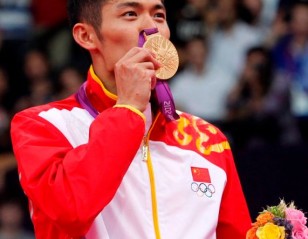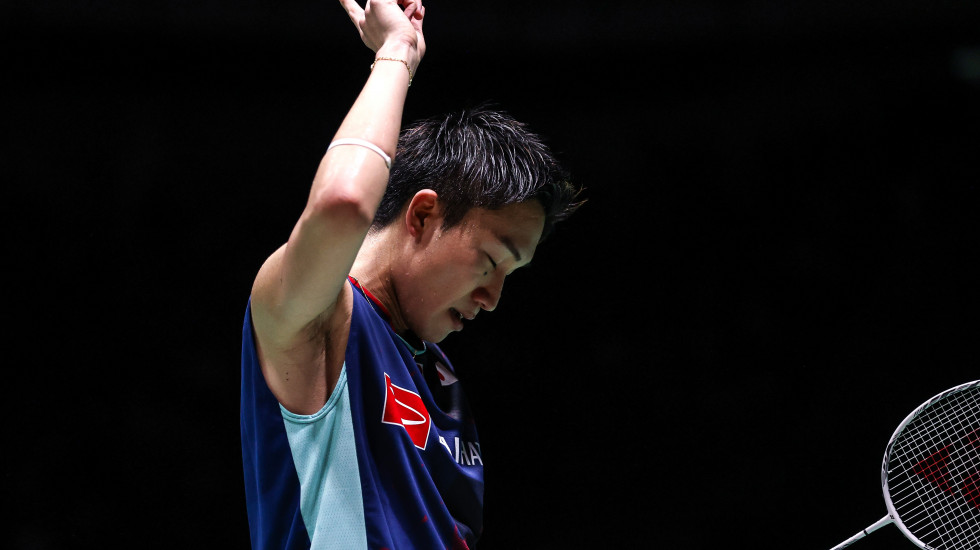
A Shot at Redemption
The BWF World Championships has never before been staged in the city of the previous Olympics. Tokyo will be a path-breaker, but more than the novelty of that fact, its significance lies in the opportunity for redemption.
This opportunity, for redemption of sorts, will most keenly be felt by the home players, after they won a sole bronze at Tokyo 2020. The talk, therefore – at least as far as the Japanese are concerned – is whether they can bury the disappointment of last year with better returns for the home audience.
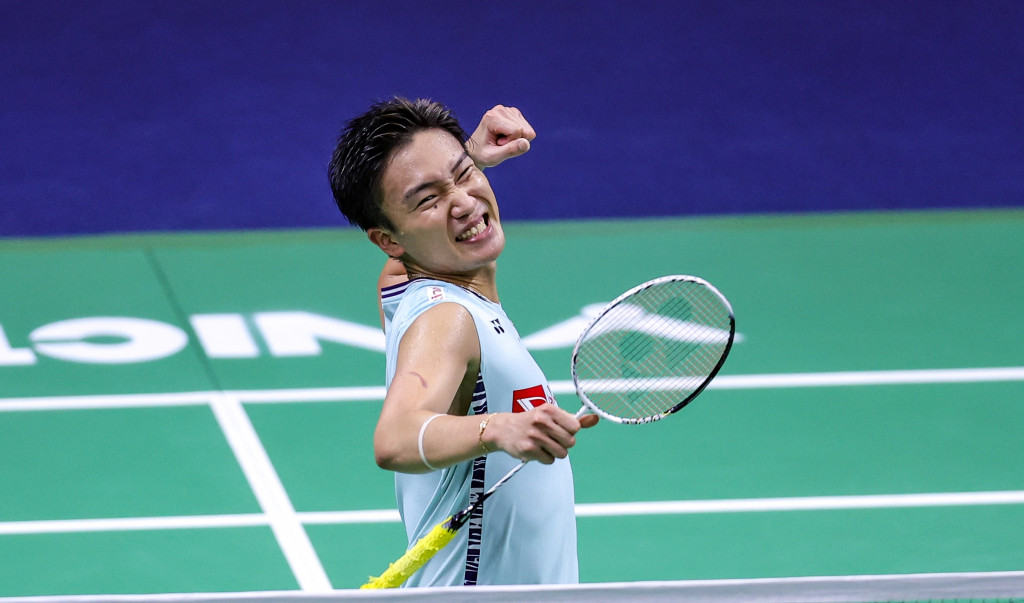
The figure who most embodies this aspiration is of course Kento Momota. Having spectacularly fallen in the group stage of the Tokyo Olympics, and with an on-off display of his best badminton since then, Momota will have the opportunity to reconquer the summit. The months since Tokyo 2020 have been a mixed bag for him, but he did win a title – the Indonesia Masters 2021 – while making two other finals. The Japanese was modest about his chances:
“As preparation for this tournament, I have been working on my skills in training and conversing with my coach to enhance my performance. Though I might not be able to be at my highest level of performance yet, I will do my best for this year’s World Championships,” said the world No.2.
“I just want to focus on myself and do my very best in this tournament. I don’t think too much about the pressure, and just try to enjoy my matches. Hopefully, I can get a good result at the end.”
Yet, redemption will be only one of several themes at the World Championships.
There is, for instance:
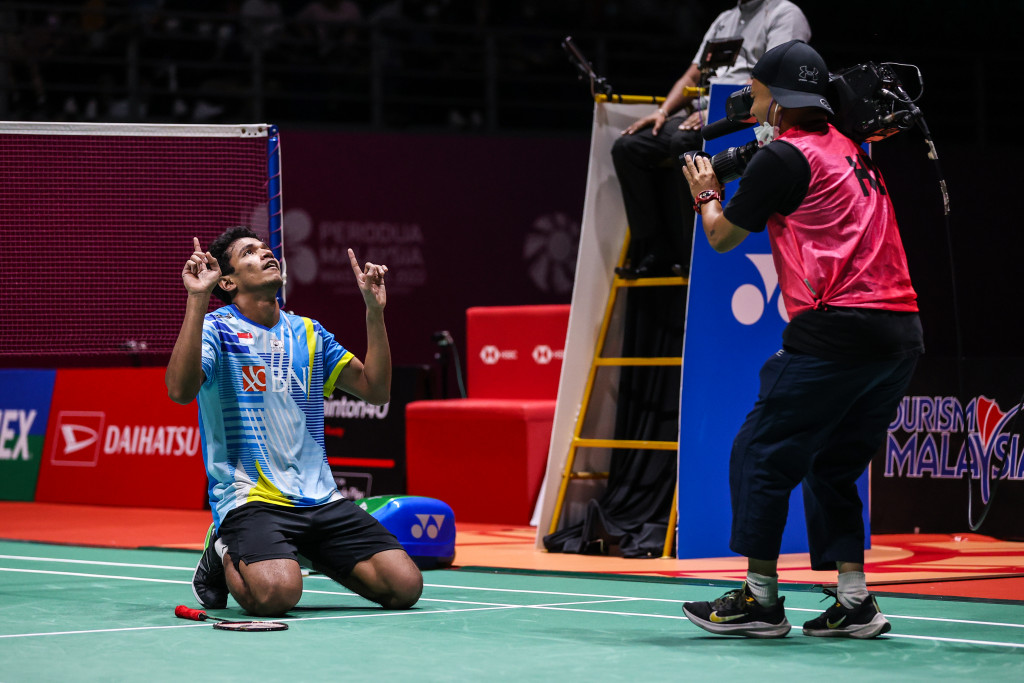
♦ A generational shift visible across all categories, particularly in men’s singles. A crop of young achievers has arrived: players like Lakshya Sen and Kunlavut Vitidsarn, while others, such as Chico Aura Dwi Wardoyo, Kodai Naraoka and Ng Tze Yong, have caused ripples lately. A ‘dark horse’ causing ripples in the draw is most likely to emerge in men’s singles.
♦ In women’s singles, this generational shift is heralded by An Se Young, whose recent Uber Cup performances and Malaysia Masters win signal that she could well be the player to beat. Korea have never won the women’s singles – could An Se Young do what none of her illustrious predecessors couldn’t?
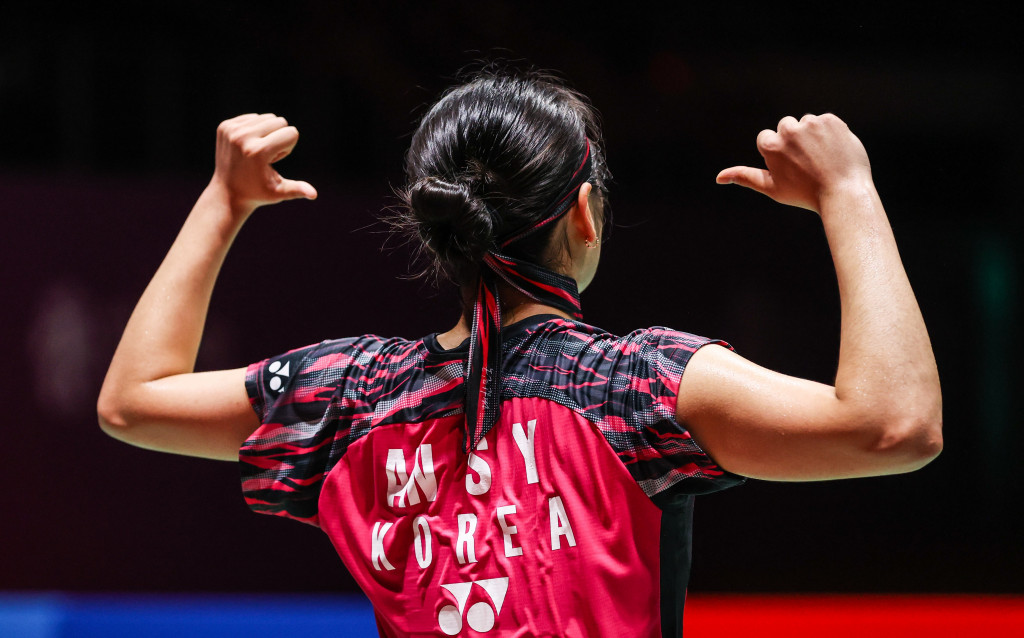
♦ Men’s doubles, for the first time since China entered international badminton, has no Chinese participation, with China having declined their invitations in this category. Traditional rivals Indonesia, on the other hand, arrive with exceptionally strong contenders. While the attention will be on the Minions (Gideon/Sukamuljo) and Daddies (Ahsan/Setiawan), the Indonesian pair that had a standout season is Fajar Alfian/Muhammad Rian Ardianto, who were in seven finals this year, winning three.
♦ Korean and Japanese depth in women’s doubles stands out. While Japan have a strong record in recent years, Korea haven’t had titlists since 1995.
♦ In mixed doubles, the main question will be on who can stop Zheng Si Wei/Huang Ya Qiong, who have swept six straight titles in the run-up to the Worlds.
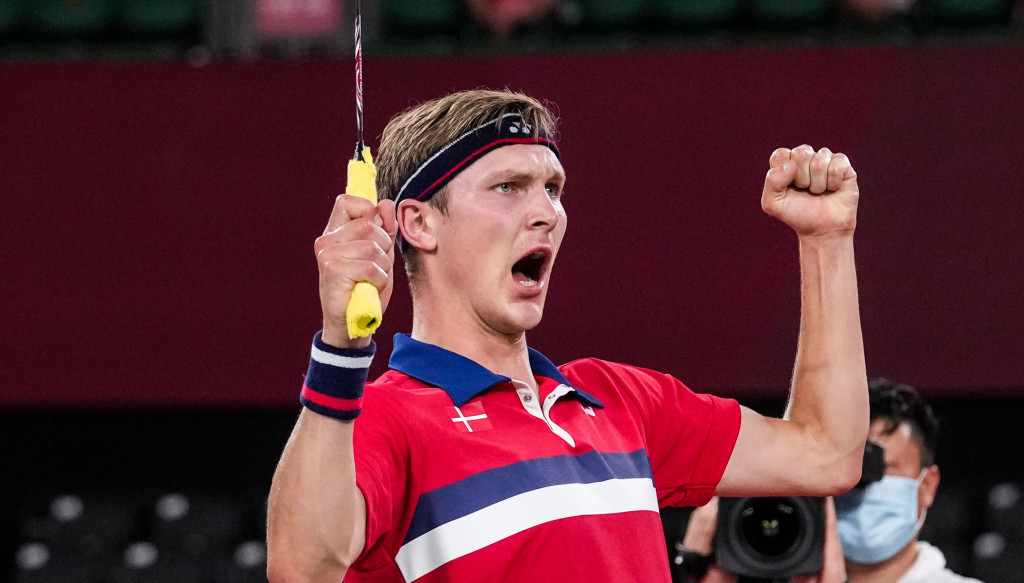
The other outstanding favourite is of course Viktor Axelsen, who is on a red-hot streak of form with three straight titles and an unbeaten streak of 31 match wins.
The top seed exuded confidence as he eyed his second World Championships title.
“I have a chance of doing well here. Obviously, when you’ve won many tournaments, you believe you can win this one. I believe in myself but I also know there are many strong competitors and every single day I have to be fully focussed, and that’s my plan for this tournament.”
“It’s great to be back in Tokyo. The last time was winning the Olympics. That was obviously the biggest experience of my career so far. So I’m happy to be back here… the last two years have been great for me. I’m just trying to stay focussed and keep doing my thing.”
World Championships News
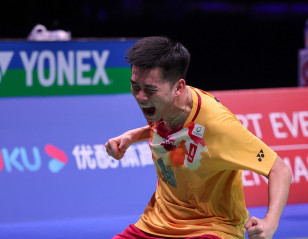
2023 in Review: History Unfolds at World Championships 28 December 2023
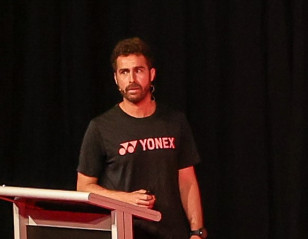
The Spaniard in China’s Corner: Part 2 24 September 2023
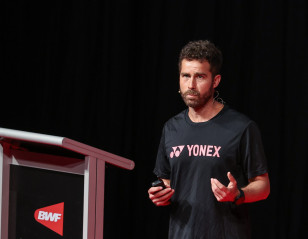
The Spaniard in China’s Corner 23 September 2023
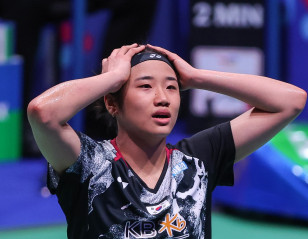
‘I Dreamed It, and It Came True’ 31 August 2023

BWF Permits Participation of Neutral Athletes from Russia and Belarus 29 August 2023
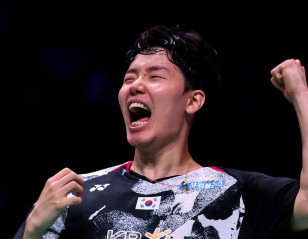
Seo-l Stirring Day for Korea 28 August 2023
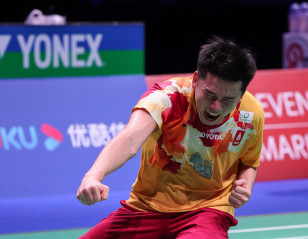
View From The Top 28 August 2023
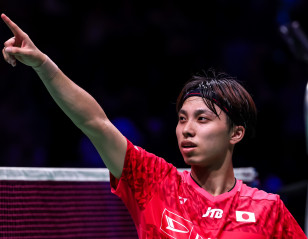
‘Gen Next’ Face-off, and a Battle for the Ages 27 August 2023
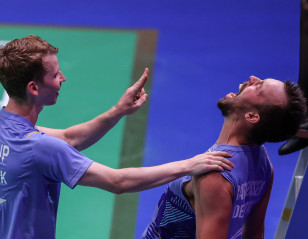
Kim & Anders Carry Danish Hopes 27 August 2023
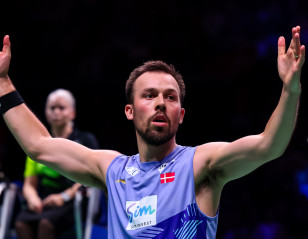
#Copenhagen2023: Day 5 in Quotes 26 August 2023
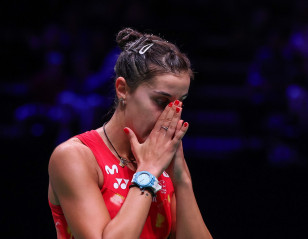
Post-Injury Medal, Marin’s Triumph of Grit 26 August 2023
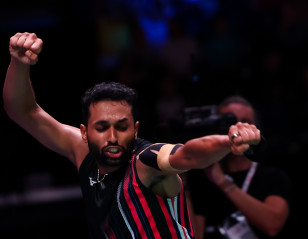
Prannoy Dares, Prannoy Wins 25 August 2023
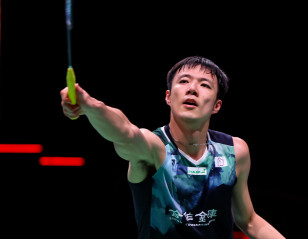
#Copenhagen2013: Day 4 in Quotes 25 August 2023
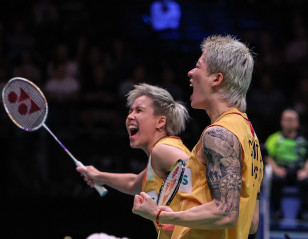
Rough Session for Higher Seeds 24 August 2023
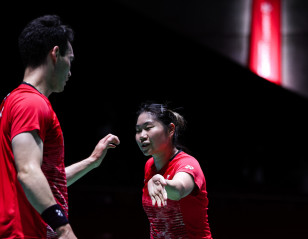
#Copenhagen2023: Day 3 in Quotes 24 August 2023
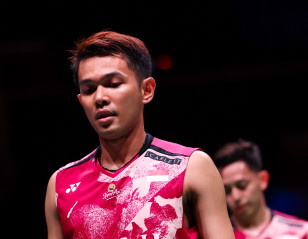
Top Seeds Out; Defending Champs Survive 24 August 2023
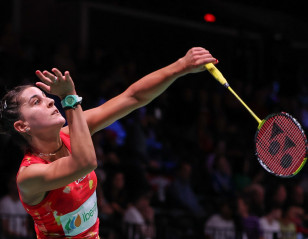
‘Felt I Got Hit by a Truck’ 23 August 2023
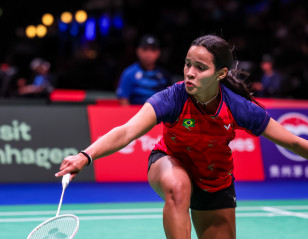
#Copenhagen2023: Day 2 in Quotes 23 August 2023
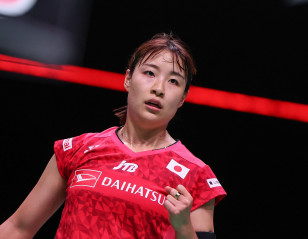
As Okuhara and Pusarla Clash, Hope and Despair 23 August 2023
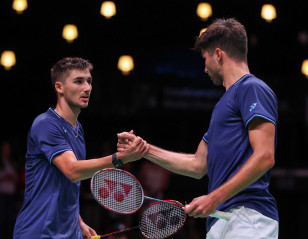
Popovs at Ease With Double-Tasking 22 August 2023
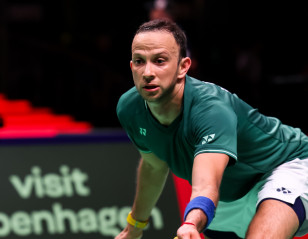
#Copenhagen2023: Day 1 in Quotes 22 August 2023
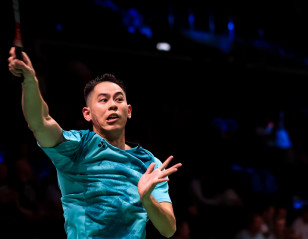
Ten Years of the World Championships – and a First Win 21 August 2023

Where To Watch: TotalEnergies BWF World Championships 2023 21 August 2023
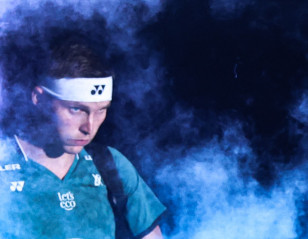
Familiar Turf, But Conditions Apply 20 August 2023
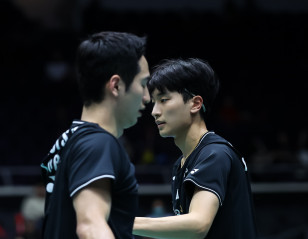
Seeds Choi/Kim, Aimsaards Pull Out 20 August 2023
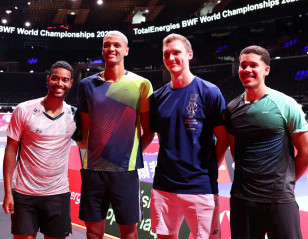
Generation That Ygor Coelho Inspired Has Arrived 20 August 2023
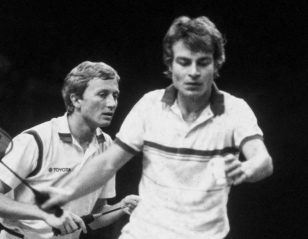
Three From Time: Denmark’s Home Champs 19 August 2023
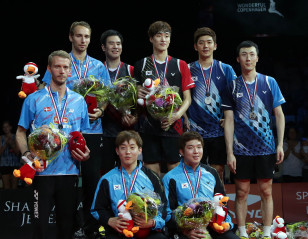
Did You Know? In Copenhagen, Korea Rule Men’s Doubles 18 August 2023
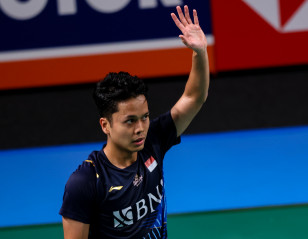
Grieving Ginting Opts Out 18 August 2023
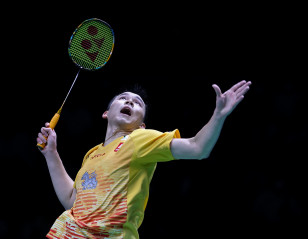
Vitidsarn Adding Weapons to Arsenal 17 August 2023
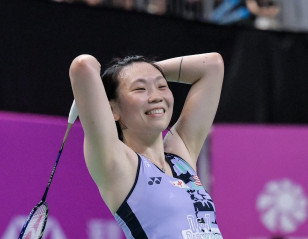
‘You Cannot Compare Yourself With Others’ 16 August 2023
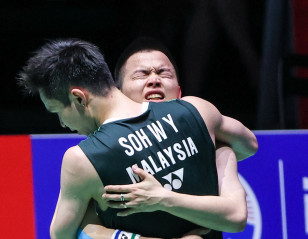
‘Have to Forget the Past and Move On’ 15 August 2023
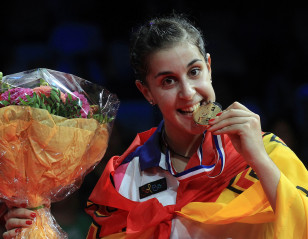
Flashback: Copenhagen 2014 and the Crowning of Carolina 14 August 2023
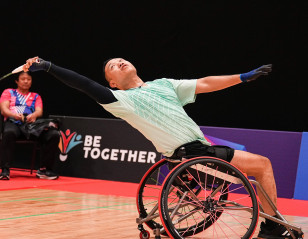
Presentations on the Art and Science of Competing 11 August 2023
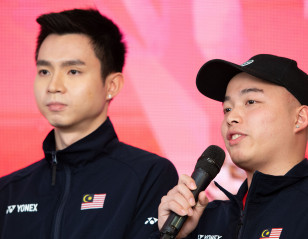
Men’s Singles Opening Rounds Promise Explosive Action 10 August 2023
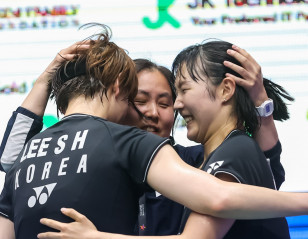
Female Coaches to Undergo Mentor Programme 25 July 2023
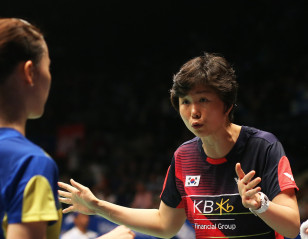
World Coaching Conference Promises Wealth of Insights 18 July 2023
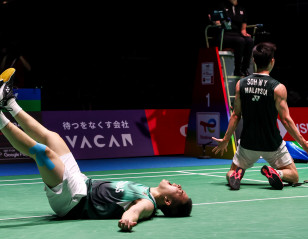
2022 in Review: Finally, World Champions from Malaysia! 30 December 2022
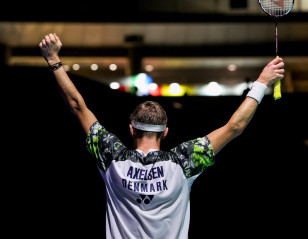
Destination Copenhagen 2023 29 September 2022
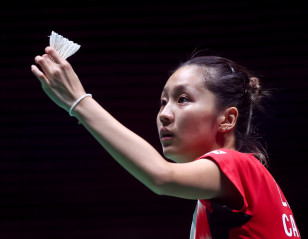
Wendy Zhang Makes a Mark 24 September 2022
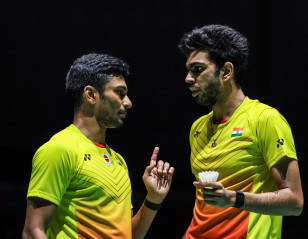
Arjun & Dhruv: Chipping Away at the Top League 21 September 2022
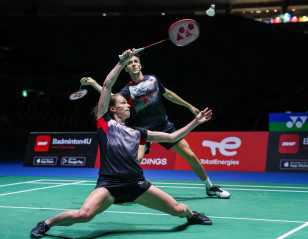
German Duo Continue to Make Strides 20 September 2022
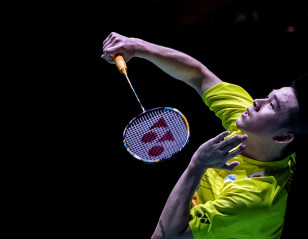
The Rise and Rise of Kunlavut Vitidsarn 14 September 2022
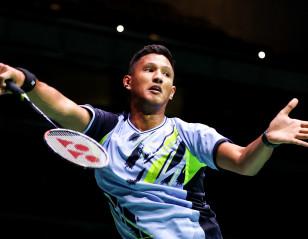
Julien Paul’s Backup Plan 11 September 2022
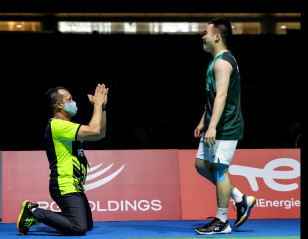
‘It Was About Finding the Connection’ 9 September 2022
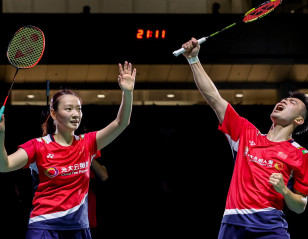
The Juggernaut Rolls On 31 August 2022
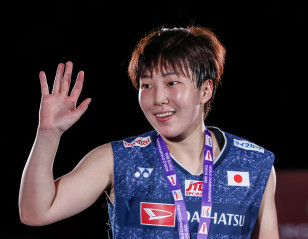
‘I’ve Never Been So Emotional’ 30 August 2022
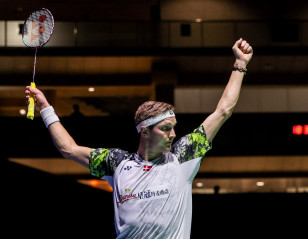
‘I’m From This Planet,’ Insists Unstoppable Axelsen 28 August 2022
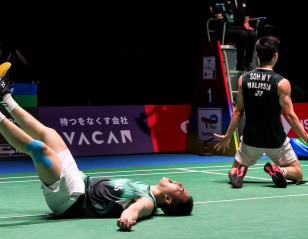
Malaysia’s Golden Moment Arrives 28 August 2022
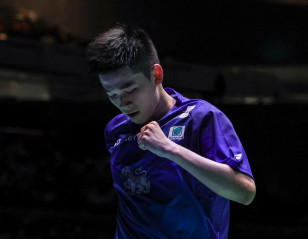
No Pressure, Says Vitidsarn 27 August 2022
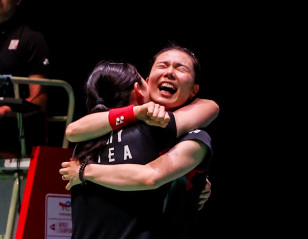
Kim/Kong Stage Great Escape 27 August 2022
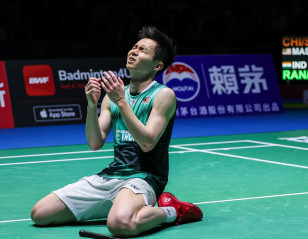
Malaysians Take on Daddies in Gold Medal Bout 27 August 2022
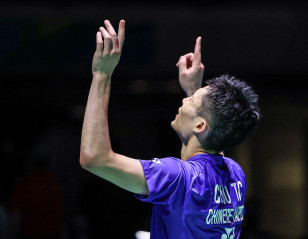
Chou’s Comeback, Christie’s Heartbreak 26 August 2022
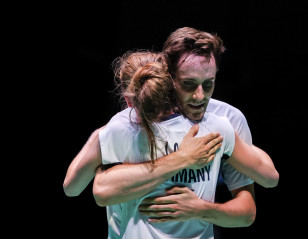
Lamsfuss/Lohau Set Milestone for Germany 26 August 2022
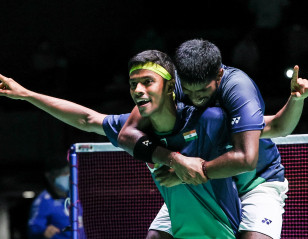
Satwik/Chirag Make History for India 26 August 2022
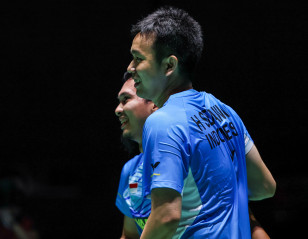
Silky Smooth Daddies in Semis 26 August 2022
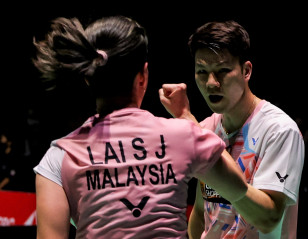
Patience Pays Off for Goh/Lai 25 August 2022
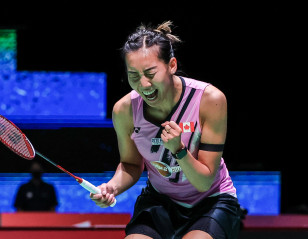
Day of the Underdog 25 August 2022
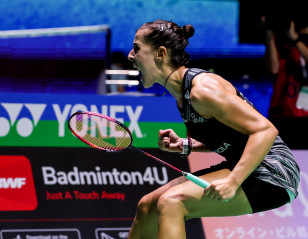
Marin’s Tenacity to the Fore 25 August 2022
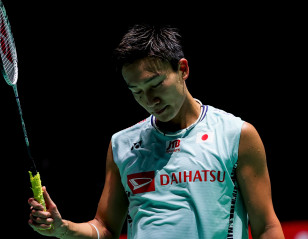
Momota Falters on Home Turf 24 August 2022

‘Control’ is Kunlavut’s Mantra 24 August 2022
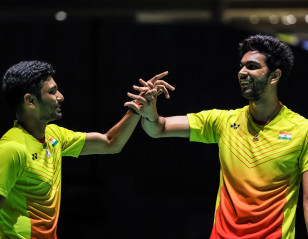
Eighth Seeds Succumb to Indian ‘Plan’ 24 August 2022
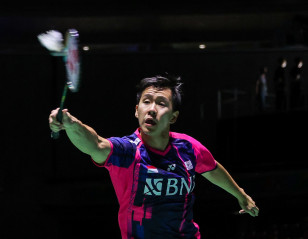
Minions Keen to Break Jinx 24 August 2022
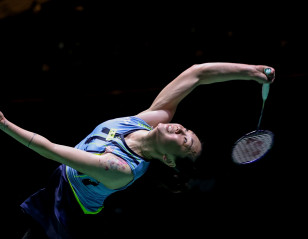
‘If You’re Afraid You Cannot Play’ 23 August 2022
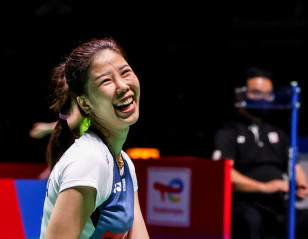
Soniia Cheah Rediscovers the Joy of Badminton 23 August 2022
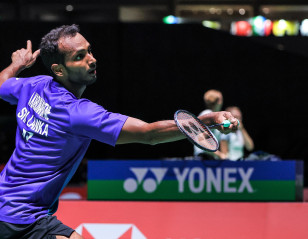
Training Through Civil Unrest, Karunaratne Keeps Going 23 August 2022
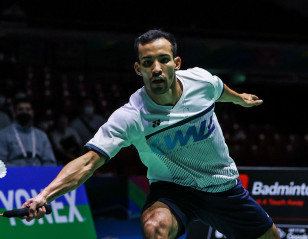
Two-Day Ordeal, But Munoz Relishes Opportunity 22 August 2022
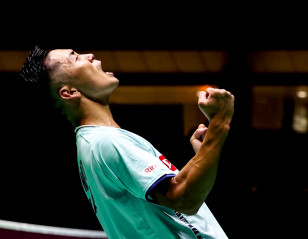
On Comeback Trail, Antonsen Stumbles to Nishimoto 22 August 2022
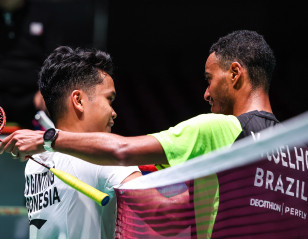
‘Wake-Up Call’, Says Ginting 22 August 2022
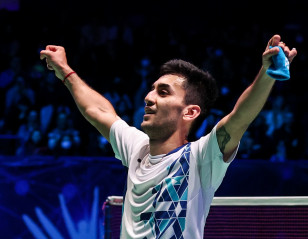
Fresh from CWG Success, Lakshya Primed for Worlds 21 August 2022
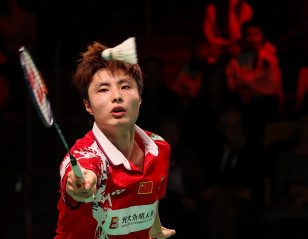
Shi Yu Qi ‘Not Nervous’ On Return 20 August 2022
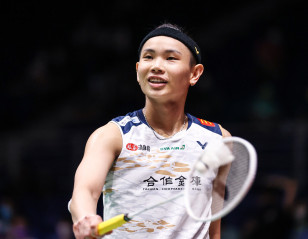
A ‘Doctor’ in the House 19 August 2022
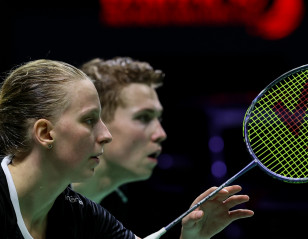
Gicquel/Delrue Lead European Charge 18 August 2022
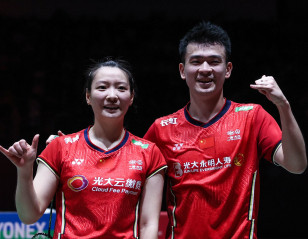
The Undiminished Hunger of Zheng & Huang 16 August 2022
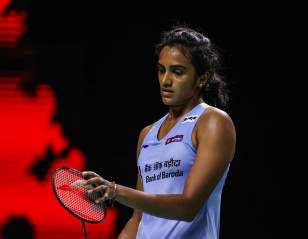
Pusarla Withdraws From World Championships 15 August 2022
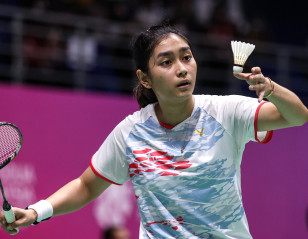
Thet Makes Her Own Way 15 August 2022
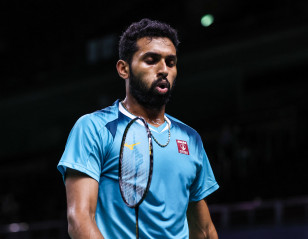
HS Prannoy, and the Art of Breathing Right to Stay Calm 14 August 2022
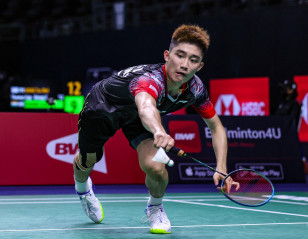
Jason Teh Carries Commonwealth Games Form into Worlds 13 August 2022
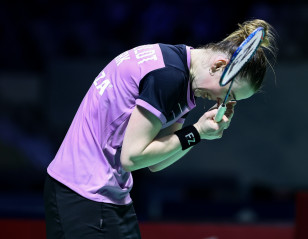
More in Store, Promises In-Form Kjaersfeldt 12 August 2022
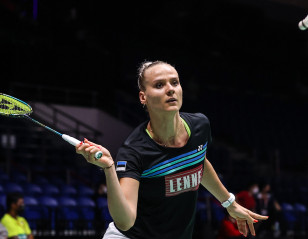
Kristin Kuuba: ‘A Miracle That I’m Here’ 11 August 2022

TotalEnergies BWF World Championships Draw 10 August 2022
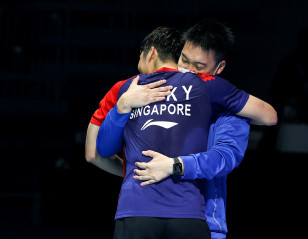
Vantage View of a World Champion | Part II 24 April 2022
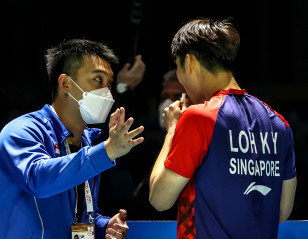
Vantage View of a World Champ 23 April 2022
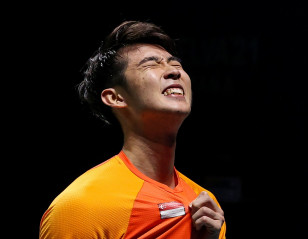
World Championships: Top Five Takeaways 23 December 2021
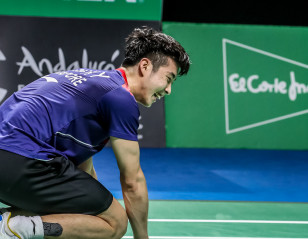
Loh Kean Yew, World Champion! 20 December 2021
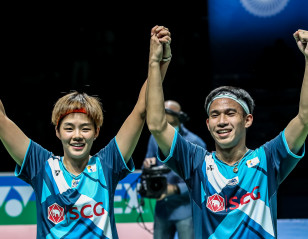
Breakthrough Titles for Thailand, Japan 19 December 2021
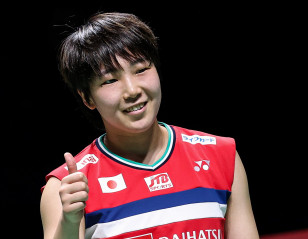
Akane Yamaguchi Reigns Supreme 19 December 2021
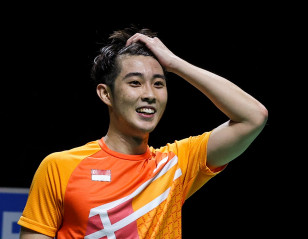
Loh Continues Dream Run into Final 19 December 2021
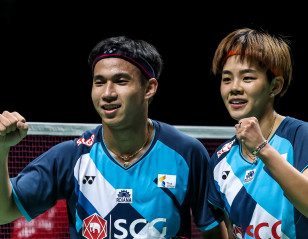
Bas/Popor in Year’s Ninth Final 18 December 2021
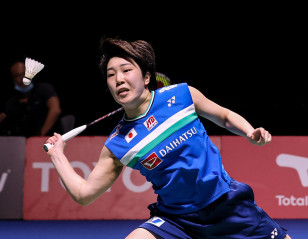
Tai, Akane in Summit Clash 18 December 2021
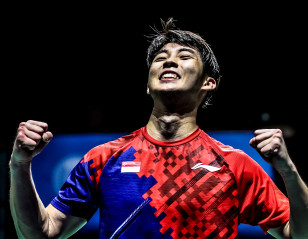
Loh’s Milestone for Singapore 18 December 2021
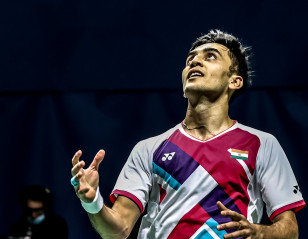
Srikanth, Lakshya Make History for India 17 December 2021
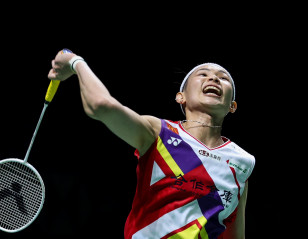
Tai Breaks World Championships Jinx 17 December 2021
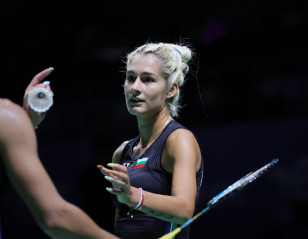
Gabriela Battles Painful Back; Stoevas in Quarters 16 December 2021
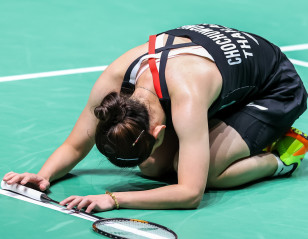
Sindhu Shakes Off Recent Tormentor 16 December 2021
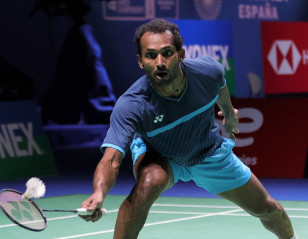
Antonsen on Niluka’s Career: ‘That’s Insane!’ 16 December 2021
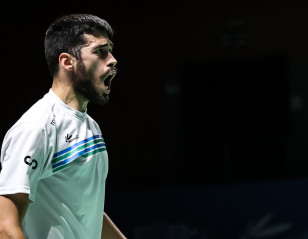
Penalver Rues Missed Opportunity on Home Turf 15 December 2021
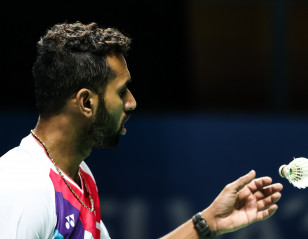
Big Step for Prannoy in Battle Against Long Covid 15 December 2021
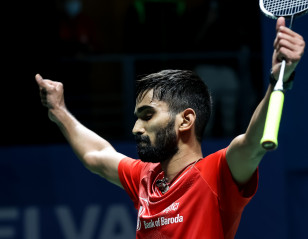
Kidambi Underplays Chances Despite Impressive Win 15 December 2021
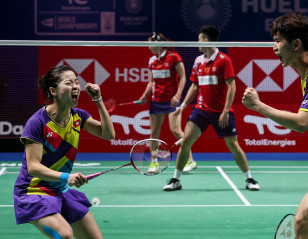
Defending Champions Zheng/Huang Crash Out 15 December 2021
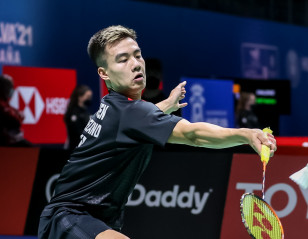
Nguyen Makes Way Back from Bout of Pneumonia 15 December 2021
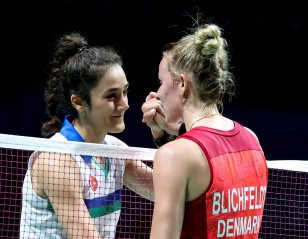
Blichfeldt Survives Yigit Scare 15 December 2021
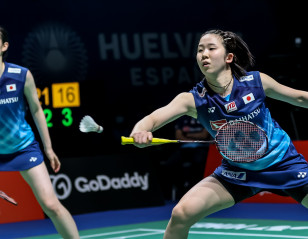
Matsumoto/Nagahara Return to Defend Title 14 December 2021
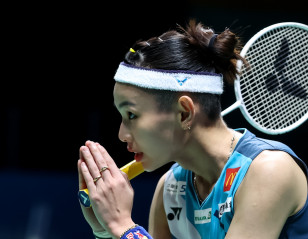
Well Rested Tai in Hunt for First World Title 14 December 2021
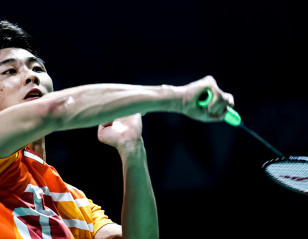
Axelsen Falls to Loh in Opening Test 14 December 2021
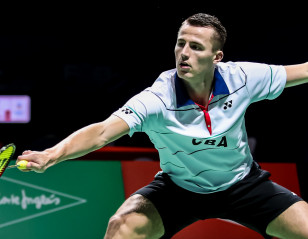
‘Mark 2’ Caljouw Surprises Himself in Return After Heart Surgery 13 December 2021
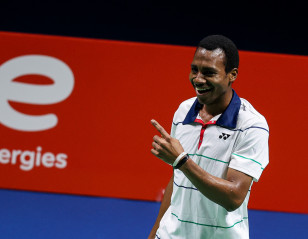
What Matters is Finishing the Game, Says Nigerian After Avoiding 21-0 Wipeout 12 December 2021
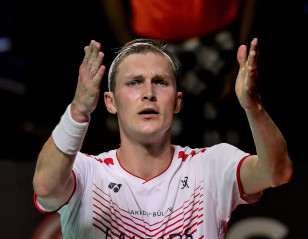
Axelsen Emphasises Importance of Staying Humble 12 December 2021
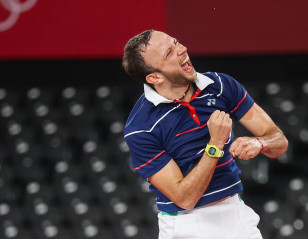
A Decade After Sensation at Worlds, Cordon’s Back 11 December 2021
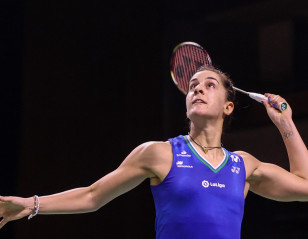
Home Favourite Marin Pulls Out of World Championships 10 December 2021
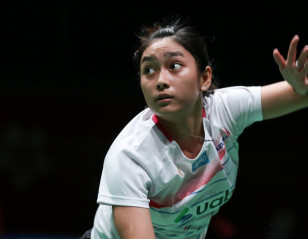
For Thuzar, a Battle on Many Levels at World Championships Debut 10 December 2021
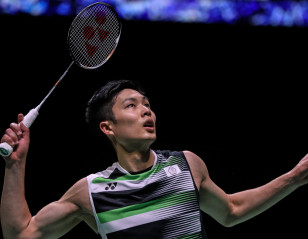
Time to Do Something Different, says Chou 9 December 2021

Statement on World Championships Withdrawals 8 December 2021
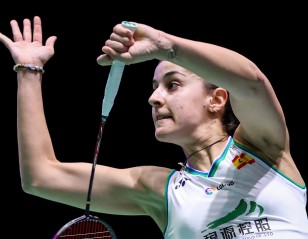
Interesting Draw for Carolina Marin on Home Turf 1 December 2021
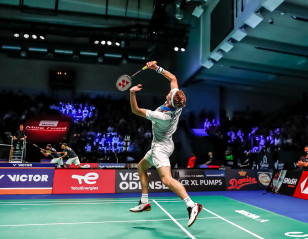
Tournament Calendar for 2022 Revealed 28 October 2021

BWF World Championships 2021 Rescheduled 1 May 2020
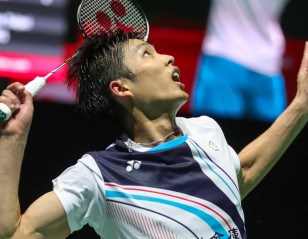
Lessons Learnt, Parting Perspectives 14 September 2019
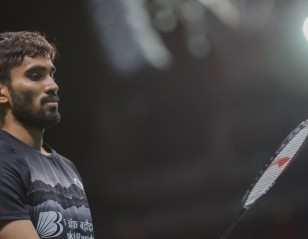
Kidambi Srikanth – A Search for Form 13 September 2019
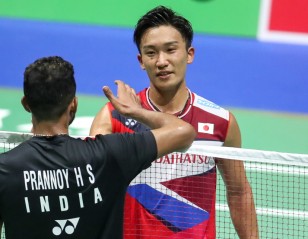
Momota, in the Eyes of his Opponents 12 September 2019
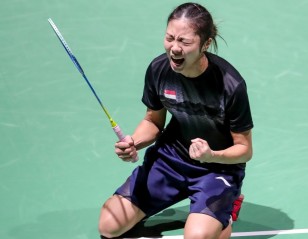
Recap: Upsets at the World Championships 10 September 2019
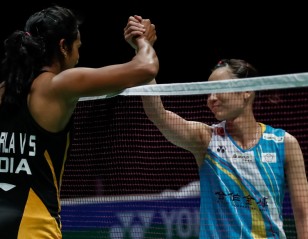
Recap: Memorable Matches of the World Championships 8 September 2019
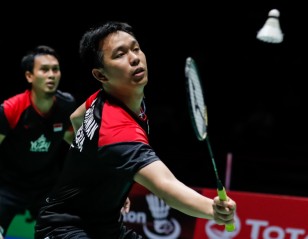
Highlights of the World Championships 7 September 2019
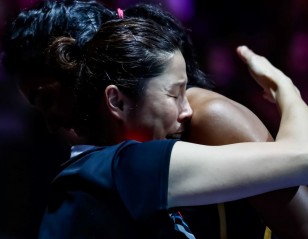
Played ‘Two’ Perfection – Basel 2019 4 September 2019

Badminton, Ice Hockey and the World Championships 4 September 2019
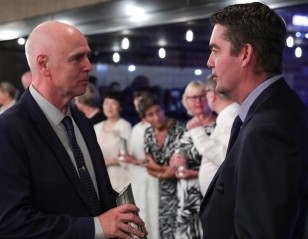
Three-Event Titan – 25th Edition World C’ships 3 September 2019
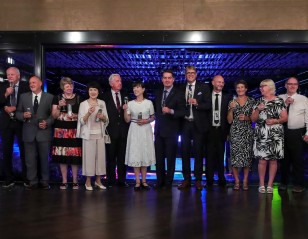
Legends of ’77 – 25th Edition World C’Ships 31 August 2019
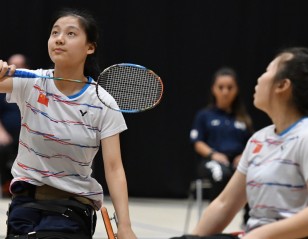
Para Badminton Event Comes to a Close – Basel 2019 27 August 2019
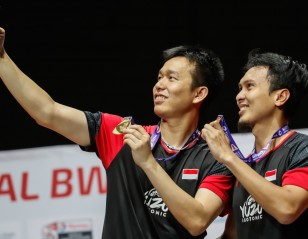
Wristy Trickery Wins the Day – Basel 2019 26 August 2019
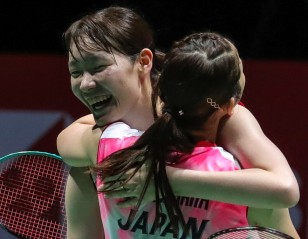
Great Comeback Falls Short – Basel 2019 26 August 2019
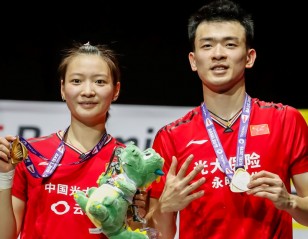
Mixed Doubles ‘Great Wall’ Intact – Basel 2019 26 August 2019
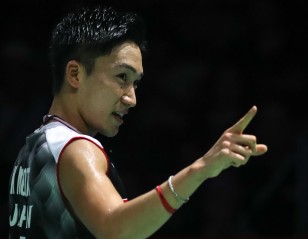
Antonsen Bows to Momota’s Class – Basel 2019 25 August 2019
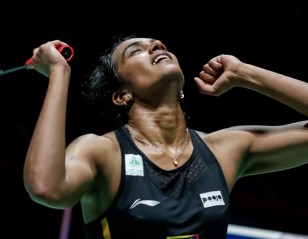
Gold – At Last! – Basel 2019 25 August 2019
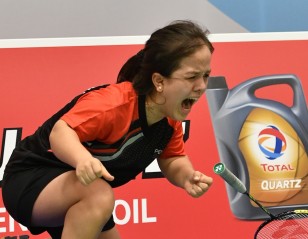
Poveda Makes It a First for Peru – Basel 2019 25 August 2019
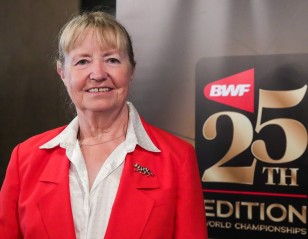
Legend Who Broke Records and Paved the Way for Future Stars –... 25 August 2019
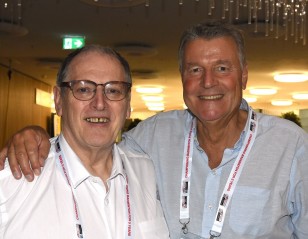
Ray’s a Real Sport – 25th Edition World C’Ships 25 August 2019
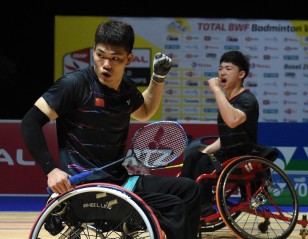
China Take Two Gold – Basel 2019 25 August 2019
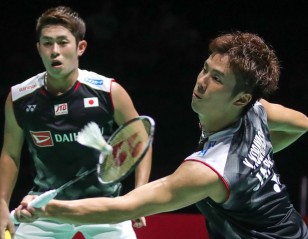
‘Upsetting’ Night for China – Basel 2019 24 August 2019
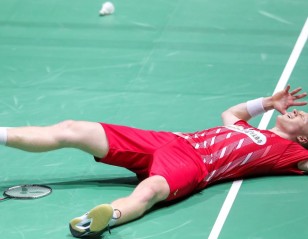
Antonsen’s ‘Insane’ Dream – Basel 2019 24 August 2019
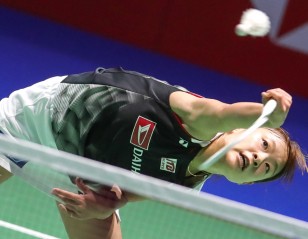
Glasgow ’17 on the Cards – Basel 2019 24 August 2019
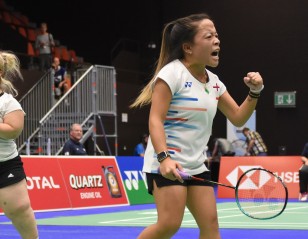
Five Down, Seventeen to Go – Basel 2019 24 August 2019
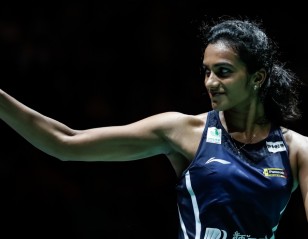
Sindhu Assures Herself: Tomorrow Will Be Different 24 August 2019
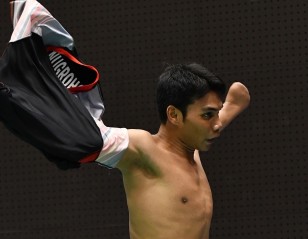
Para Badminton Athletes Turn It Up a Notch – Basel 2019 24 August 2019
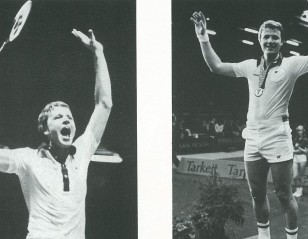
Flaming Dane Set Courts Aglow – 25th Edition World C’Ships 24 August 2019
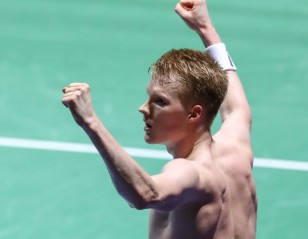
Antonsen Delivers for Europe – Basel 2019 23 August 2019
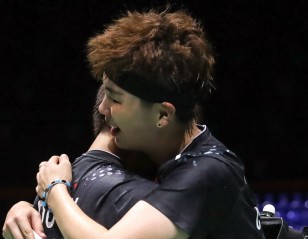
Du/Li Stand Tall After 2-Hour Epic – Basel 2019 23 August 2019
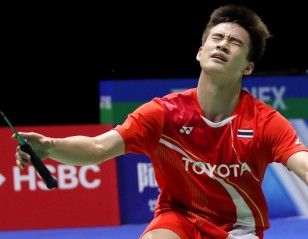
Kantaphon Leads Thailand’s Record Haul – Basel 2019 23 August 2019
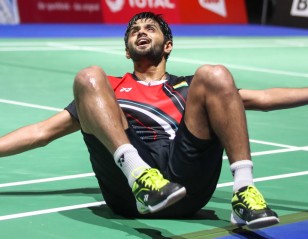
Sensational Session for India – Basel 2019 23 August 2019
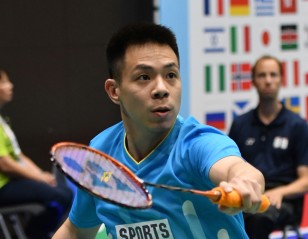
Tall Order for Standing Men – Basel 2019 23 August 2019
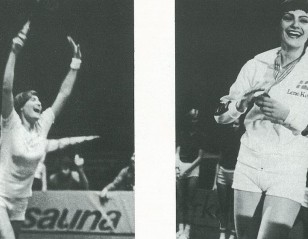
Crowd Pleasing Superstar – 25th Edition World C’Ships 23 August 2019
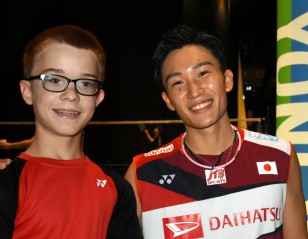
Teenage Shuttler Meets His Idol – Basel 2019 23 August 2019
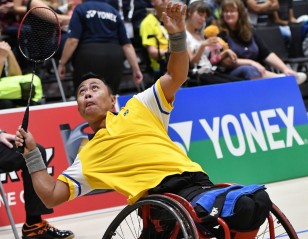
Wheelchair Top Seed Toppled – Basel 2019 23 August 2019
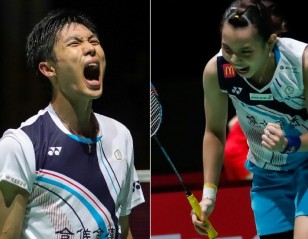
‘Two’ Much Trouble! – Basel 2019 22 August 2019
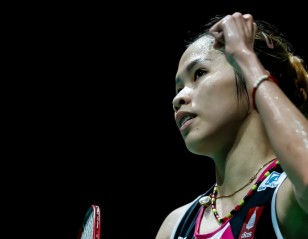
Intanon Survives Scare – Basel 2019 22 August 2019
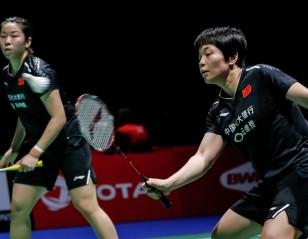
BWF Statement – TOTAL BWF World Championships 2019 22 August 2019
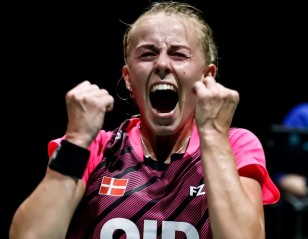
Belated Birthday Blitz! – Basel 2019 22 August 2019
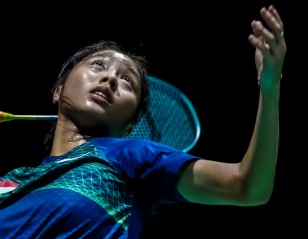
Back Problem Doesn’t Stall Jia Min – Basel 2019 22 August 2019
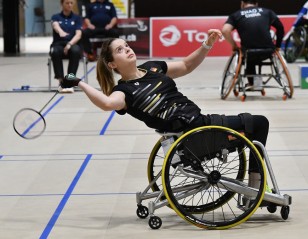
Girl Power – Basel 2019 22 August 2019
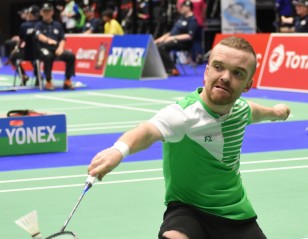
Group Rounds Move into Main Draw – Basel 2019 22 August 2019
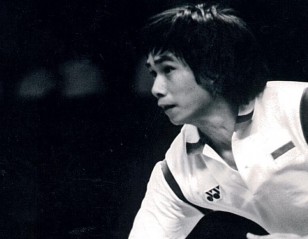
Lessons from the Seventies – 25th Edition World C’Ships 22 August 2019
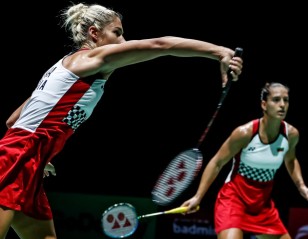
Women Getting in Gear – Basel 2019 21 August 2019
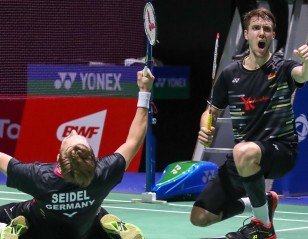
German Shock for Fifth Seeds – Basel 2019 21 August 2019
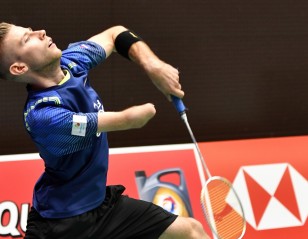
I Feel at Home says Mroz – Basel 2019 21 August 2019
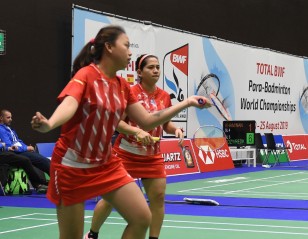
The Power of the Mind – Basel 2019 21 August 2019
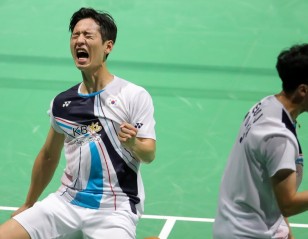
Minions Crash Land at Worlds Yet Again – Basel 2019 21 August 2019
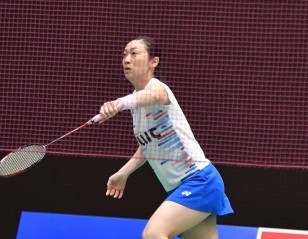
Suzuki Banks on Experience Over Age – Basel 2019 21 August 2019
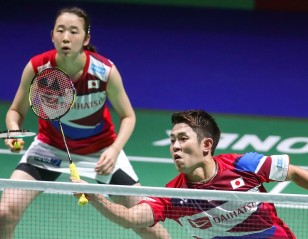
Nagahara ‘Mixing It Up’ – Basel 2019 20 August 2019
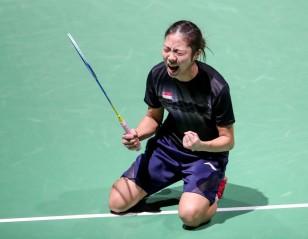
Jia Min Ousts Top Seed – Basel 2019 20 August 2019
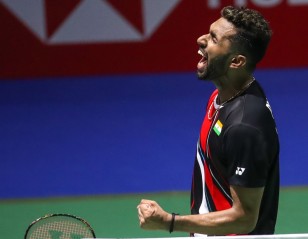
Lin’s Challenge Sputters Out – Basel 2019 20 August 2019
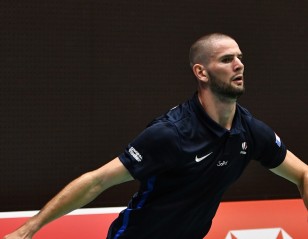
Mazur On Track to Retain Crown – Basel 2019 20 August 2019
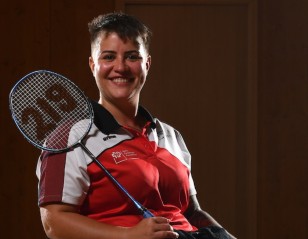
Trading One Set of Wheels for Another 20 August 2019
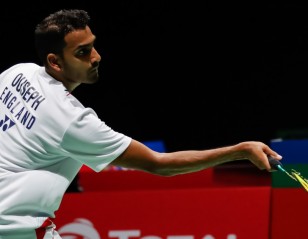
Ouseph Exits Stage, Bids Goodbye – Basel 2019 19 August 2019
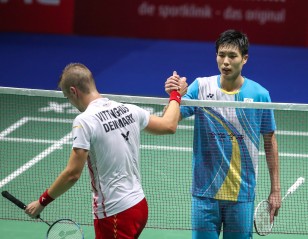
Chou Survives Danish Test – Basel 2019 19 August 2019
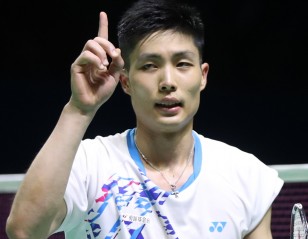
A Title Dedicated to a Battle Against Cancer 19 August 2019
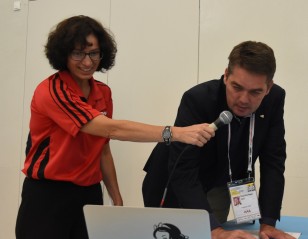
Draw Provides an Even Playing Field for All 18 August 2019
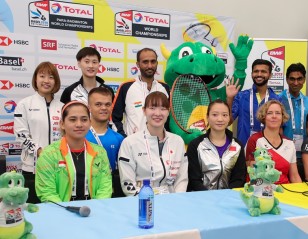
Para-llel Event a Unique Experience for Badminton Fraternity 18 August 2019
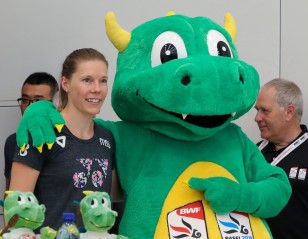
An Occasion to Cherish for Jaquet – Basel 2019 18 August 2019
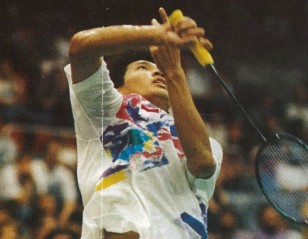
‘100 Watt Smash’ that Lit Up Lausanne – 25th Edition World C’Ships 17 August 2019
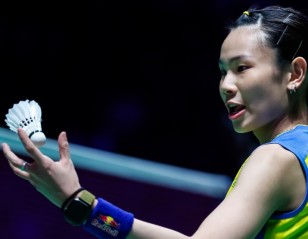
Preview: Worlds of Opportunity 17 August 2019
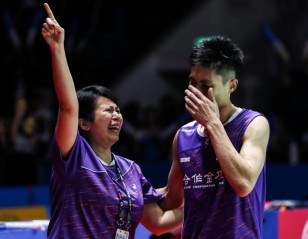
By Chou’s Side 16 August 2019
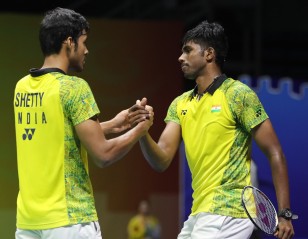
Satwik/Chirag to Miss World Championships 16 August 2019
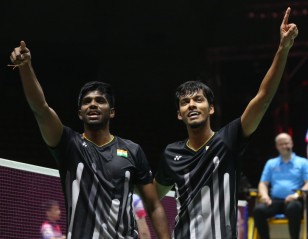
Indian Pair Blazes a Trail 15 August 2019
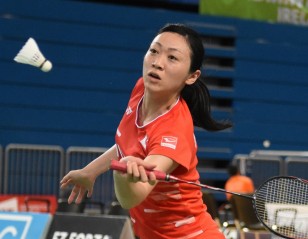
Awesome Threesome of SU5 – Para Badminton World C’Ships 14 August 2019
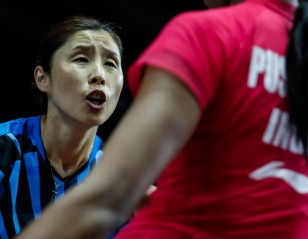
Life Lessons, From Coach Kim Ji Hyun 14 August 2019
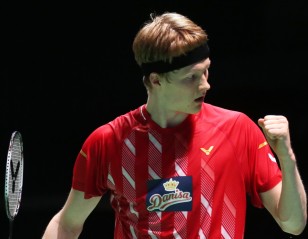
Free of Pressure, Antonsen Senses His Chance 13 August 2019
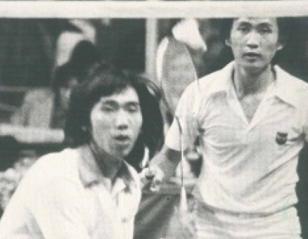
Genius of Vintage Invincibles (Part 2) – 25th Edition World C’Ships 13 August 2019
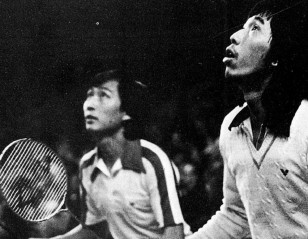
Genius of Vintage Invincibles (Part 1) – 25th Edition World C’Ships 12 August 2019
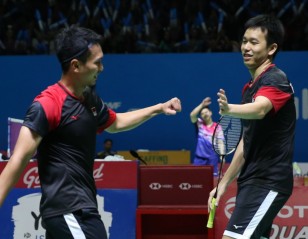
Ahsan/Hendra Play it Cool Despite Hot Form 11 August 2019
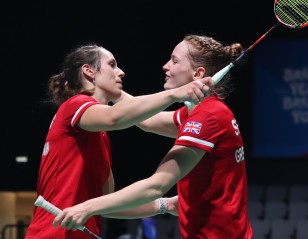
England Duo Anticipate Fruitful Week in Basel 10 August 2019

Women’s Singles Re-Draw – TOTAL BWF World Championships 2019 9 August 2019
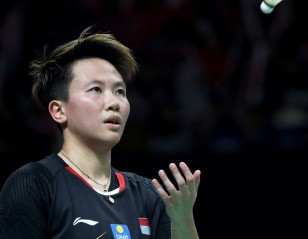
Winny Will Need Support: Liliyana Natsir 8 August 2019
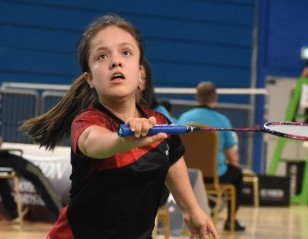
Sports Upbringing Gives Edge to Poveda 7 August 2019
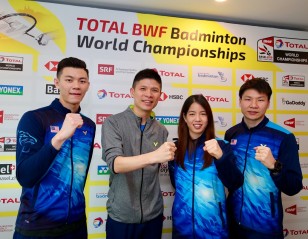
World Championships Draw Released 5 August 2019
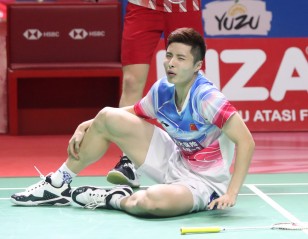
Marin, Shi Join Axelsen on Sidelines 5 August 2019
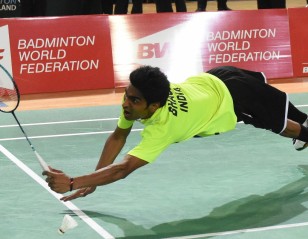
New Para Badminton Chapter Unfolds in Basel 1 August 2019
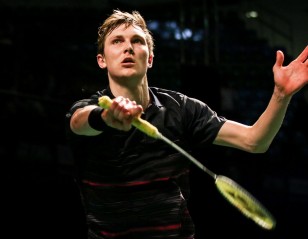
Injured Axelsen Withdraws From World Championships 31 July 2019
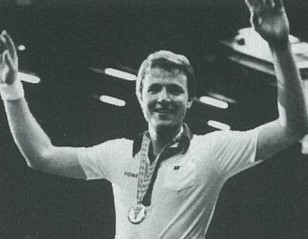
From Malmo to Basel – 25th Edition World C’Ships 30 July 2019
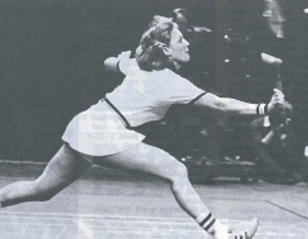
Famous Five and the Good Old Days – 25th Edition World C’Ships 19 July 2019
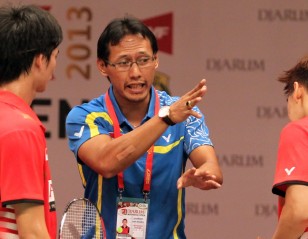
Revisiting a Hero: Sigit Budiarto 11 July 2019
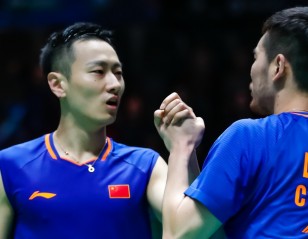
History Beckons Zhang Nan 10 July 2019
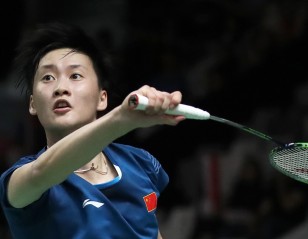
Chen To Lead China’s Charge 9 July 2019
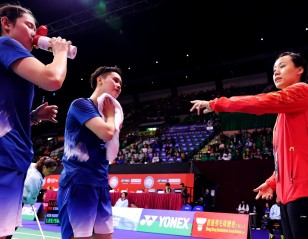
19 Days Left To Register for World Coaching Conference 26 June 2019
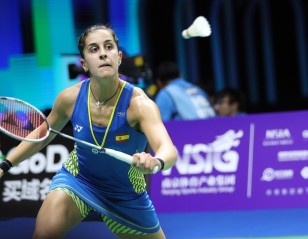
Marin on the Mend and Eyes Return 22 June 2019
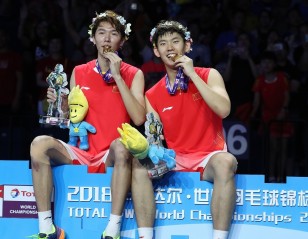
Two Months To Go – World C’Ships Countdown 19 June 2019
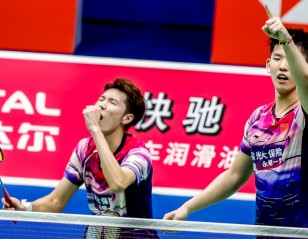
Li & Liu – Stepping Up When It Matters 7 June 2019
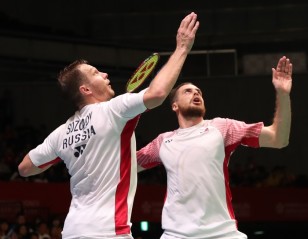
Ivanov & Sozonov Rekindle The Fire 3 June 2019
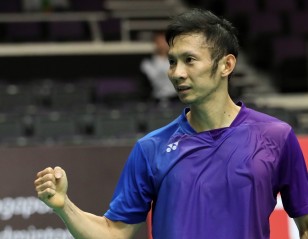
Tien Minh – Veteran Still Chasing His Dreams 2 June 2019
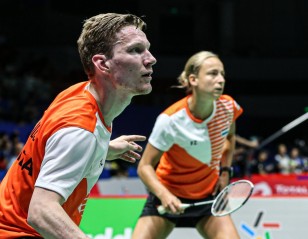
Confidence Boost for Dutch Duo 1 June 2019
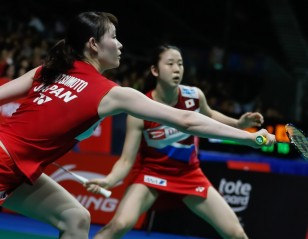
Matsumoto & Nagahara: Rapid Ascent to Pinnacle 8 May 2019
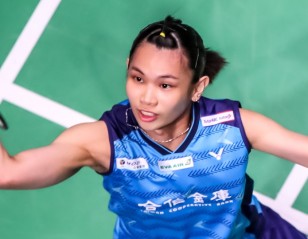
Tai Eases into Top Gear 25 April 2019
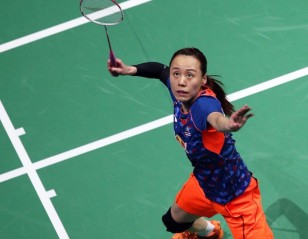
Zhao Yunlei Star Speaker at Coaching Conference 24 April 2019
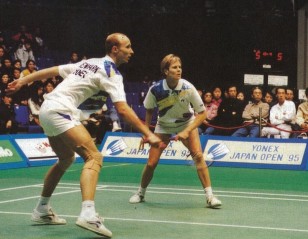
‘The Physical Level Has Gone Up’ 22 April 2019
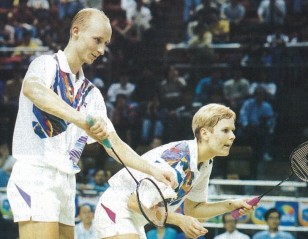
Memories of Lausanne 1995 20 April 2019
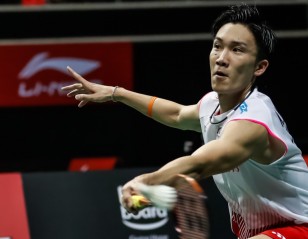
Momota Sets the Pace, but Speedbreakers Lurk 18 April 2019

BWF and Total Celebrate Five Years of Partnership 18 April 2019
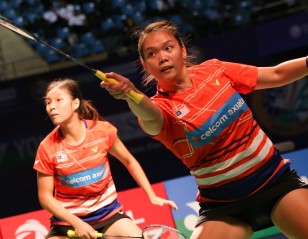
Shot in the Arm for Chow/Lee 1 April 2019

Badminton Thrust into Bright Lights – World C’Ships 13 March 2019

Gold and Glory for Arbi – Throwback ’95 World C’ships 19 February 2019

GoDaddy Extends Major Events Partnership with BWF 11 February 2019
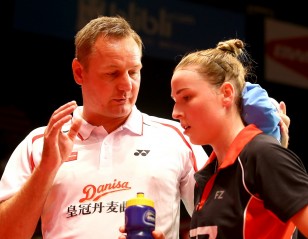
Star speakers assembled for BWF World Coaching Conference 2019 30 January 2019
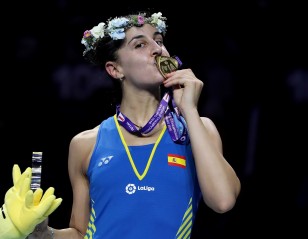
Singles Champions – Down the Ages 20 December 2018
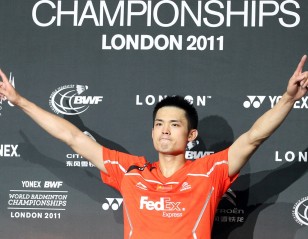
Celebrating 25 editions of the BWF World Championships 20 December 2018
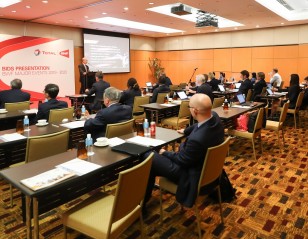
BWF Major Event Hosts 2019-2025 Awarded 29 November 2018
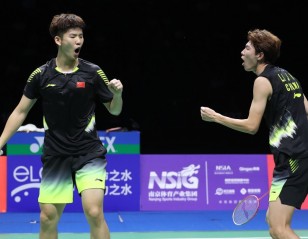
World Champs in Second Place 5 September 2018
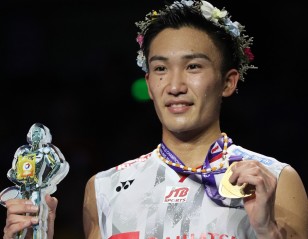
Momota Climbs to Fourth Spot 4 September 2018
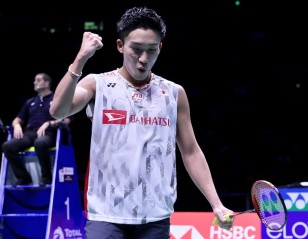
Rebirth of a Star – Men’s Singles Review: TOTAL BWF World Championships... 20 August 2018
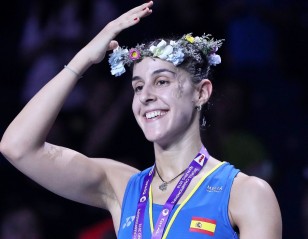
Marin Times it Right – Women’s Singles Review: TOTAL BWF World Championships... 16 August 2018
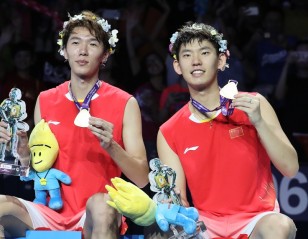
Princes on the Throne – Men’s Doubles Review: TOTAL BWF World Championships... 14 August 2018
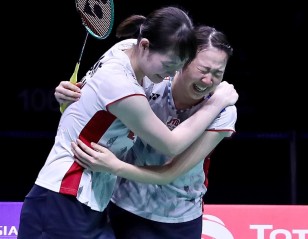
A Record Falls – Women’s Doubles Review: TOTAL BWF World Championships 2018 13 August 2018
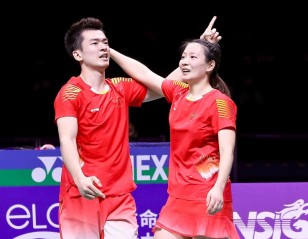
Stamp of Class – Mixed Doubles Review: TOTAL BWF World Championships 2018 10 August 2018
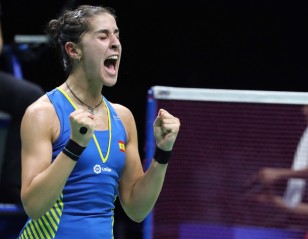
King Kento, Queen Carolina – Singles Finals: TOTAL BWF World Championships 2018 6 August 2018
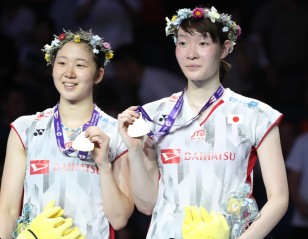
Young Sensations! – Doubles Finals: TOTAL BWF World Championships 2018 5 August 2018
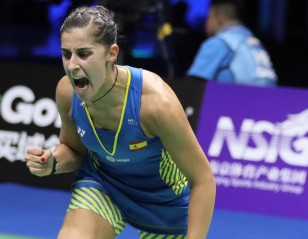
History in the Making – Semi-Finals: TOTAL BWF World Championships 2018 4 August 2018
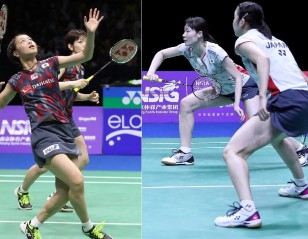
Crowning Glory – Semi-Finals: TOTAL BWF World Championships 2018 4 August 2018
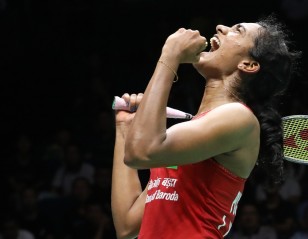
Singles Champions Out! – Day 5: TOTAL BWF World Championships 2018 3 August 2018
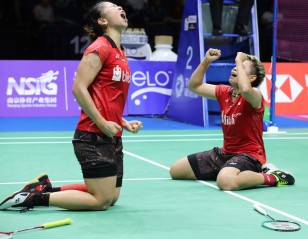
‘Top’-pled! – Day 5: TOTAL BWF World Championships 2018 3 August 2018
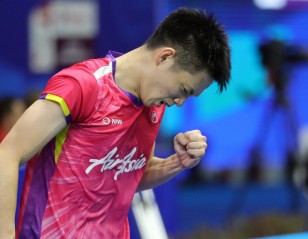
Liew Flies High – Day 4: TOTAL BWF World Championships 2018 2 August 2018
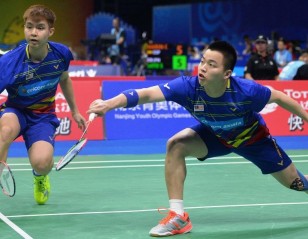
Chia/Soh Shock Selves – Day 4: TOTAL BWF World Championships 2018 2 August 2018
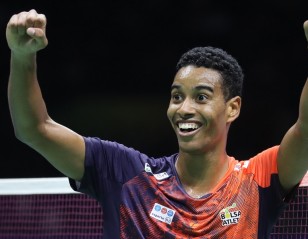
Brazil Express Chugs On – Day 3: TOTAL BWF World Championships 2018 1 August 2018
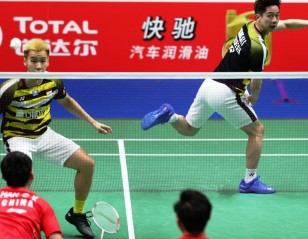
Triumph Under Fire – Day 3: TOTAL BWF World Championships 2018 1 August 2018

Indians Exact Revenge – Day 2: TOTAL BWF World Championships 2018 31 July 2018
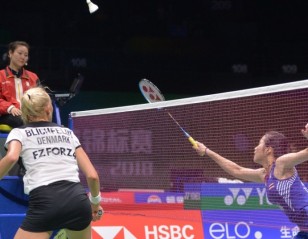
Back from the Brink! – Day 2: TOTAL BWF World Championships 2018 31 July 2018
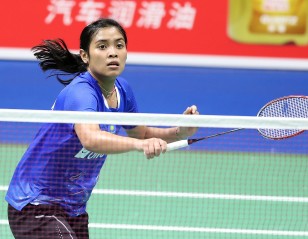
Tunjung Waltzes Into Second Round – Day 1: TOTAL BWF World Championships... 30 July 2018
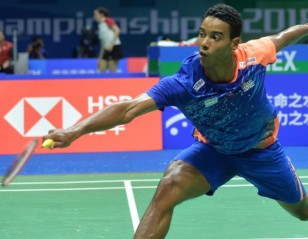
‘Poster Boy’ Profits – Day 1: TOTAL BWF World Championships 2018 30 July 2018
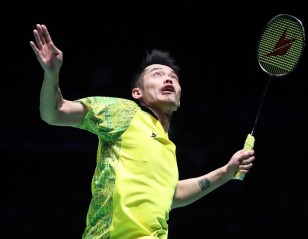
Lin Starts Quest Tomorrow 29 July 2018
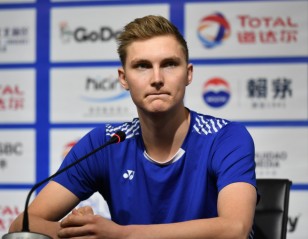
Axelsen: Momota a Complete Player 29 July 2018
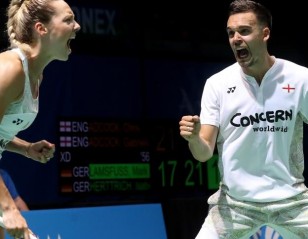
Several Strong Contenders – Mixed Doubles Preview: TOTAL BWF World Championships 2018 28 July 2018

BWF Announces Laymau Partnership 28 July 2018
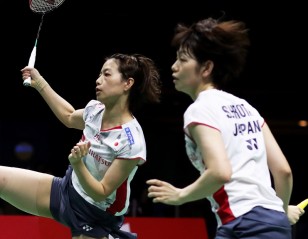
China’s Record Under Threat – Women’s Doubles Preview: TOTAL BWF World Championships... 27 July 2018
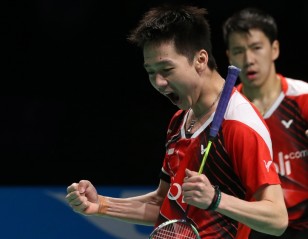
Minions on Fire – Men’s Doubles Preview: TOTAL BWF World Championships 2018 25 July 2018

Tai the Frontrunner – Women’s Singles Preview: TOTAL BWF World Championships 2018 24 July 2018
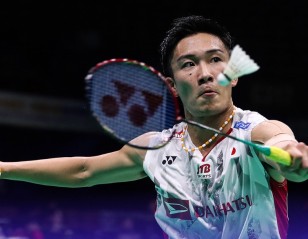
Spotlight on Momota – Men’s Singles Preview: TOTAL BWF World Championships 2018 23 July 2018
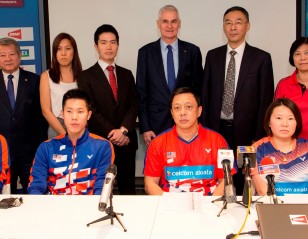
Leverdez in Lee’s Way…Again – TOTAL BWF World Championships 2018 Draw 17 July 2018
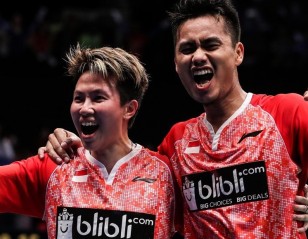
Ahmad/Natsir To Skip Title Defence 5 June 2018
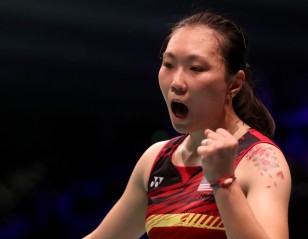
Beiwen Zhang Qualifies for World Championships 15 May 2018
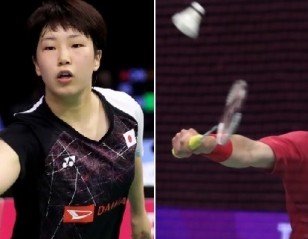
Momota Qualifies for ‘Worlds’ 27 April 2018
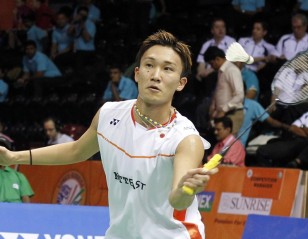
Top Stars Well-Placed Before Qualifying Deadline 30 March 2018
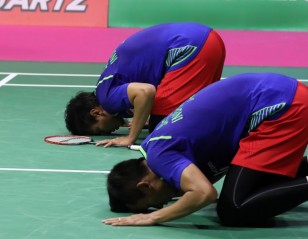
Wrap: Great Matches – TOTAL BWF World Championships 2017 29 August 2017
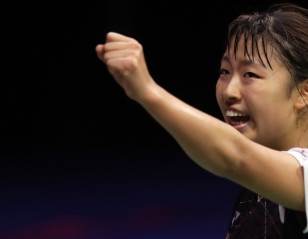
Okuhara Prevails in Epic – Singles Finals: TOTAL BWF World Championships 2017 28 August 2017
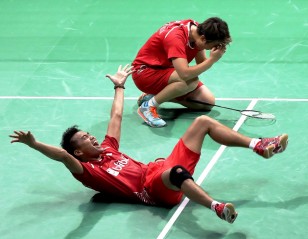
‘Four’ Sure! – Doubles Finals: TOTAL BWF World Championships 2017 27 August 2017
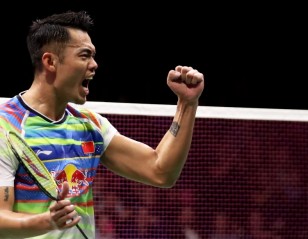
Lin in Seventh Final – Semi-Finals: TOTAL BWF World Championships 2017 27 August 2017
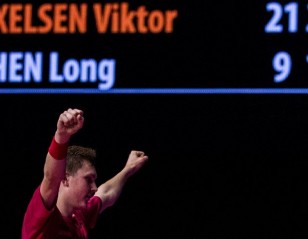
‘Axel-lent’ Job! – Semi-Finals: TOTAL BWF World Championships 2017 26 August 2017
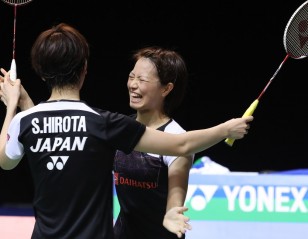
Queen Carolina Dethroned – Day 5: TOTAL BWF World Championships 2017 26 August 2017
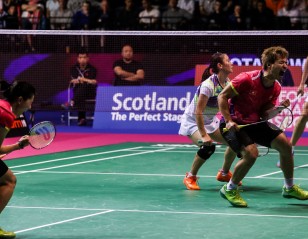
Hong Kong’s Doubles Delight – Day 5: TOTAL BWF World Championships 2017 25 August 2017
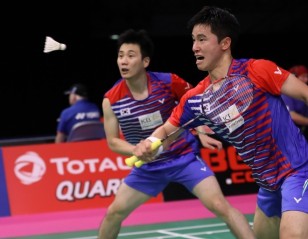
Chung/Kim Stay in Hunt – Day 4: TOTAL BWF World Championships 2017 25 August 2017
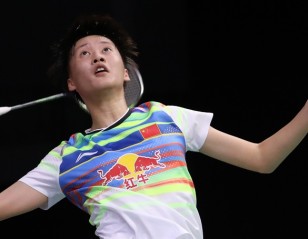
Top Seed Tumbles – Day 4: TOTAL BWF World Championships 2017 24 August 2017
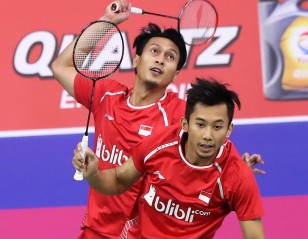
Tremors Hit Men’s Doubles – Day 3: TOTAL BWF World Championships 2017 24 August 2017
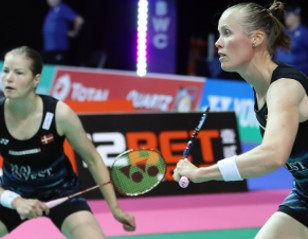
Mama Mia – Europe’s Hopes Rise! – Day 3: TOTAL BWF World... 23 August 2017
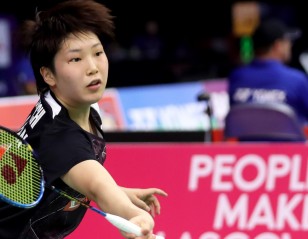
Singles Seeds Stumble – Day 2: TOTAL BWF World Championships 2017 22 August 2017
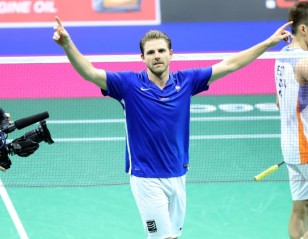
Lee Stunned in Opening Round – Day 2: TOTAL BWF World Championships... 22 August 2017
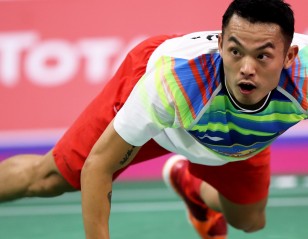
No Mercy for Merrilees – Day 1: TOTAL BWF World Championships 2017 21 August 2017
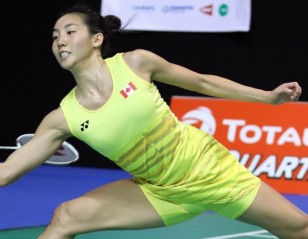
Bumpy Start for Michelle Li – DAY 1: TOTAL BWF WORLD CHAMPIONSHIPS... 21 August 2017
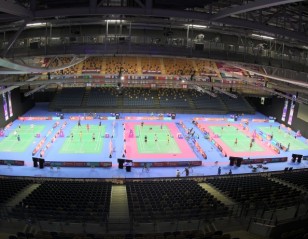
Ready for Liftoff! 21 August 2017
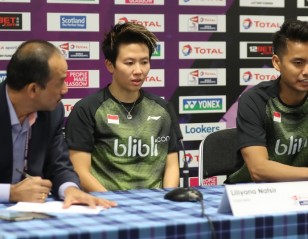
Ahmad/Natsir Brimming With Confidence 20 August 2017
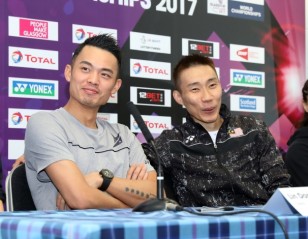
Marin Lays it On the Line 20 August 2017
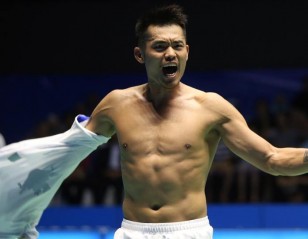
Twist in the Script? – Men’s Singles Preview 20 August 2017

Welcome to Glasgow! 19 August 2017
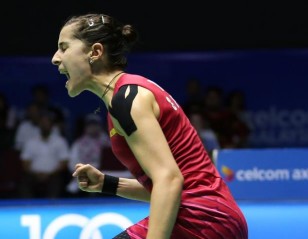
Too Close to Call – Women’s Singles Preview 18 August 2017
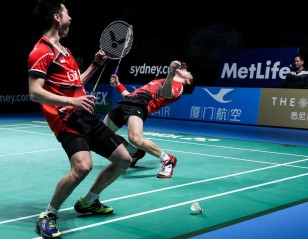
Energy Versus Guile – Men’s Doubles Preview 16 August 2017
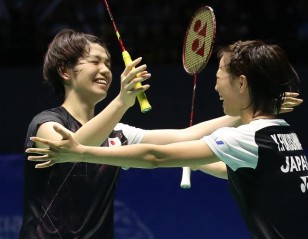
Japan Have the Edge – Women’s Doubles Preview 14 August 2017
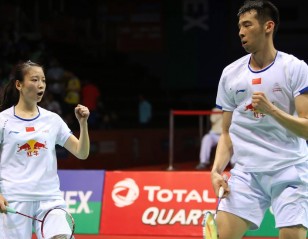
Form Favours China – Mixed Doubles Preview 12 August 2017

‘Worlds’ Blockbuster On The Cards 9 August 2017
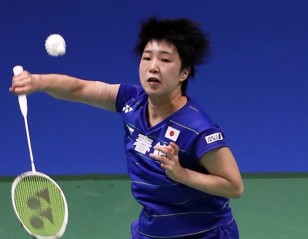
Son, Yamaguchi Top-Seeded for Worlds 6 August 2017
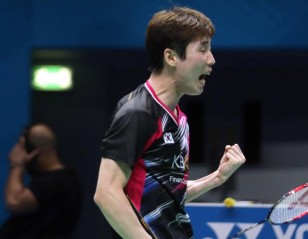
Son Has Tail Up with No.1 Ranking 2 August 2017
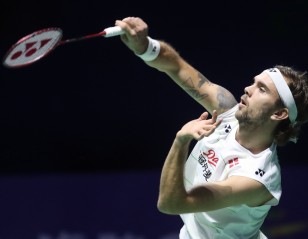
Injury Dashes Jorgensen’s Hopes 1 August 2017

12BET an Official Partner of World Championships 24 July 2017
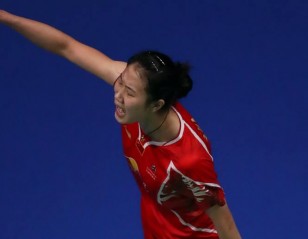
China Ace Qualification for Worlds 21 July 2017
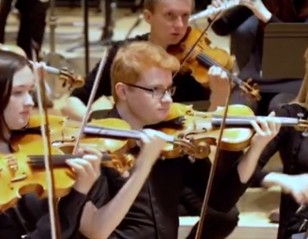
Thomas Composes a World Championships Winner 7 July 2017

Li Xuerui’s Hopes Alive for Worlds 9 June 2017
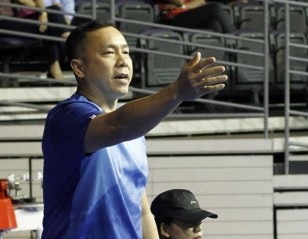
Tan Kim Her for World Coaching Conference 17 May 2017
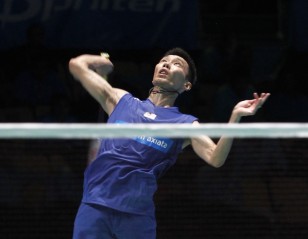
Top Guns Confirm Places 16 May 2017

Race to Nanjing Begins 6 May 2017
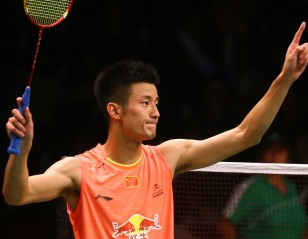
Chen Long Gets ‘Worlds’ Wild Card 4 May 2017
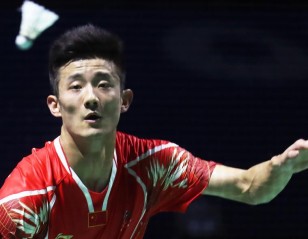
Chen Long’s Fate in the Balance 28 April 2017
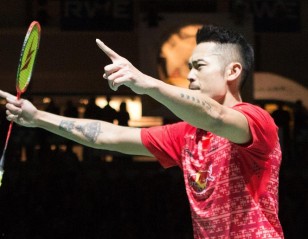
Lin Dan Stakes Glasgow Claim 20 April 2017

Jorgensen, Tai Lead Race to Glasgow 24 February 2017
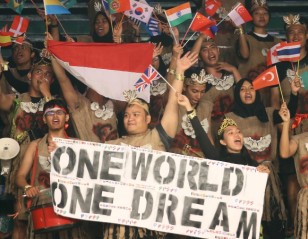
Past Stars Recall Istora Heroics 28 August 2015
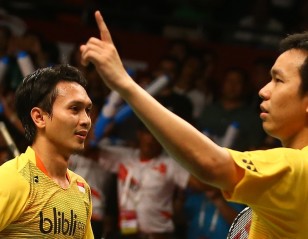
Epic Duels, Gritty Champions –TOTAL BWF World Championships 2015 Review 26 August 2015
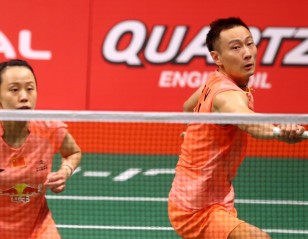
Yun-ique Zhao Double-Doubles! – Finals: TOTAL BWF World Championships 2015 16 August 2015
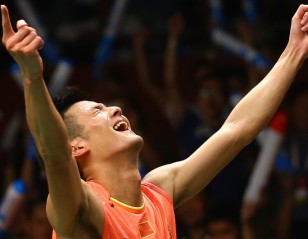
Chen, Marin Retain Singles Crowns – Finals: TOTAL BWF World Championships 2015 16 August 2015
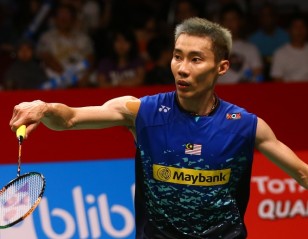
Lee Too Good for Jorgensen – Semi-finals: TOTAL BWF World Championships 2015 15 August 2015
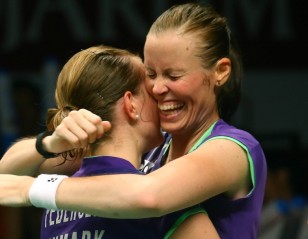
Chen, Marin in Title Round – Semi-finals: TOTAL BWF World Championships 2015 15 August 2015
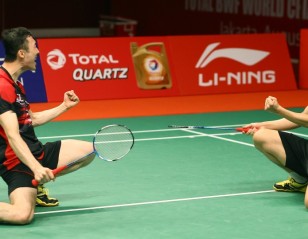
Nehwal Prevails in Epic – Quarter-finals: TOTAL BWF World Championships 2015 14 August 2015
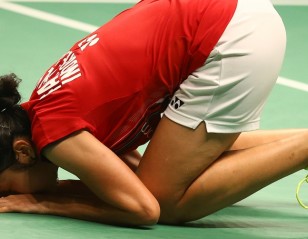
Fanetri Does a Houdini – Quarter-finals: TOTAL BWF World Championships 2015 14 August 2015
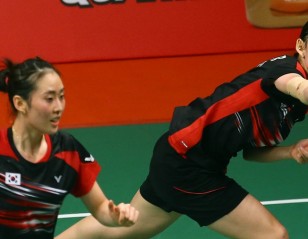
Shock for Chinese Pairs – Day 4: TOTAL BWF World Championships 2015 13 August 2015
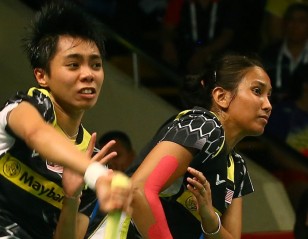
Li Xuerui Bites the Dust – Day 4: TOTAL BWF World Championships... 13 August 2015
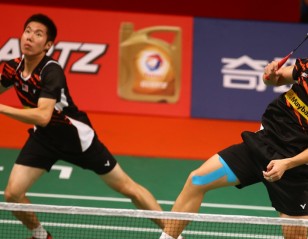
Defending Champs Shin/Ko Crash Out – Day 3: TOTAL BWF World Championships... 12 August 2015
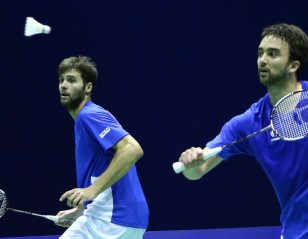
Underdogs Make an Impression – Day 3: TOTAL BWF World Championships 2015 12 August 2015
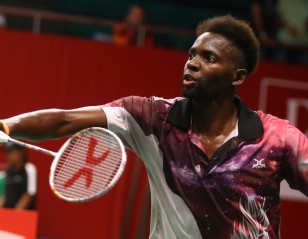
Survivor Ekiring Has Ambitions for Africa 12 August 2015
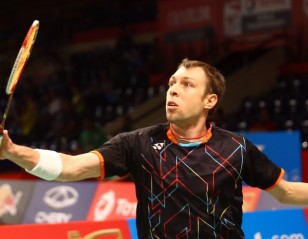
Statement Regarding Misha Zilberman 11 August 2015
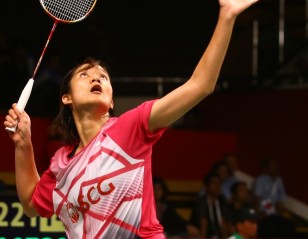
Buranaprasertsuk Springs a Surprise – Day 2: TOTAL BWF World Championships 2015 11 August 2015
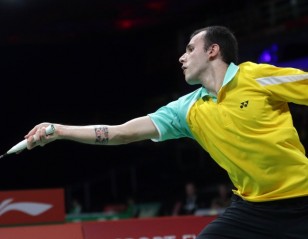
Dream Day for Paiola; Tago Out – Day 2: TOTAL BWF World... 11 August 2015
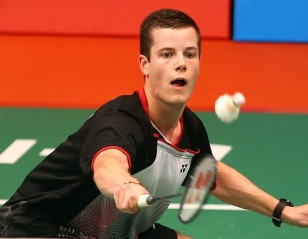
Must, Giuffre Fight into Second Round – Day 1: TOTAL BWF World... 10 August 2015
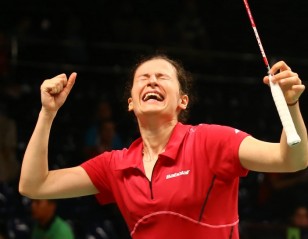
Emotional Win for Zetchiri – Day 1: TOTAL BWF World Championships 2015 10 August 2015
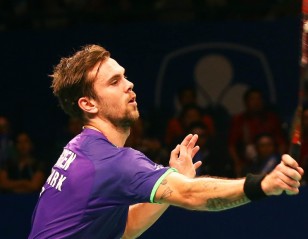
Men’s Singles Preview – Total BWF World Championships 2015 9 August 2015
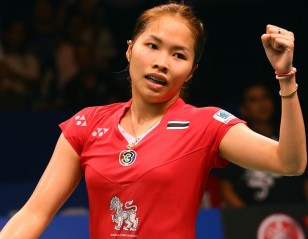
Women’s Singles Preview – Total BWF World Championships 2015 9 August 2015
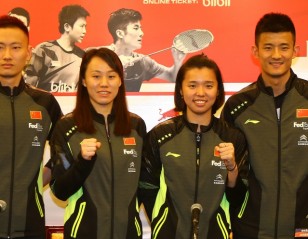
Lull Before the Storm – Total BWF World Championships 2015 9 August 2015
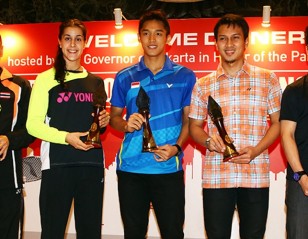
Carolina Marin Wins Fans’ Vote 9 August 2015
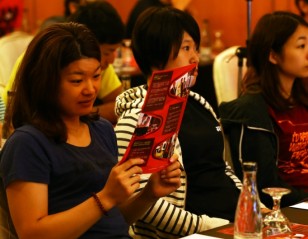
BWF Conducts Players’ Media Education Programme 8 August 2015
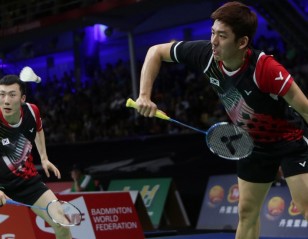
Men’s Doubles Preview – Total BWF World Championships 2015 7 August 2015
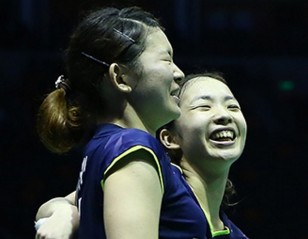
Women’s Doubles Preview – Total BWF World Championships 2015 6 August 2015
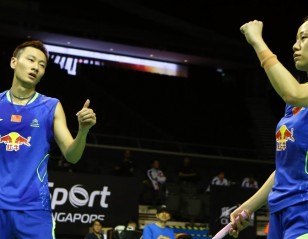
Mixed Doubles Preview – Total BWF World Championships 2015 5 August 2015
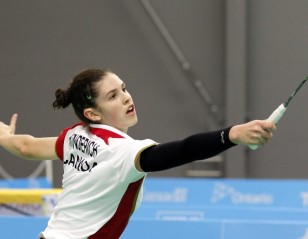
Youth Battles Experience in Openers – Total BWF World Championships 2015 3 August 2015

Chen, Lee in Separate Halves – Total BWF World Championships 2015 28 July 2015
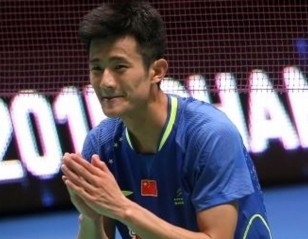
Chen, Marin Top Seeds – Total BWF World Championships 2015 28 July 2015

The Manga RobotQuartz Contest is On! 16 July 2015
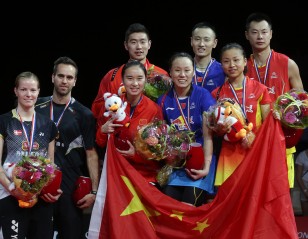
How the Defending Champions Have Fared 15 July 2015
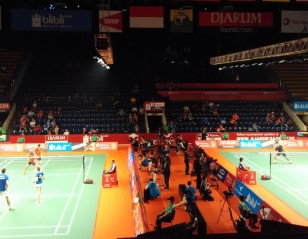
26 Years On … Classic in the Making 15 July 2015
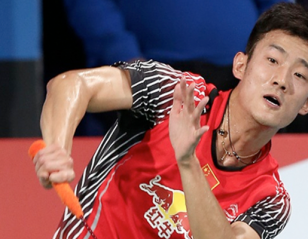
‘Singling’ out the Best: TOTAL BWF World Championships 2015 15 July 2015
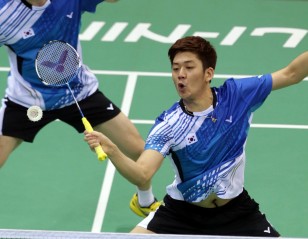
Year of the Be-‘Lee’-Ver?: TOTAL BWF World Championships 2015 15 July 2015
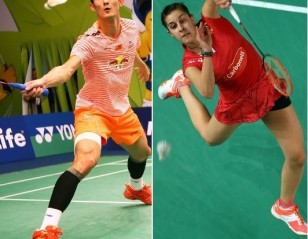
‘Singling’ out the Best: TOTAL BWF World Championships 2015 17 June 2015
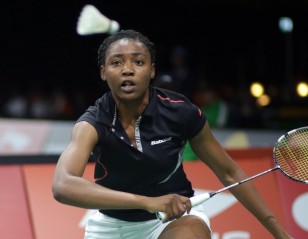
‘Development’ Players in Phase 1 List 6 May 2015
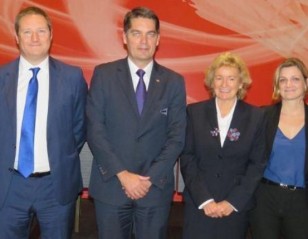
Badminton ‘Worlds’ Going to Glasgow in 2017 14 November 2014
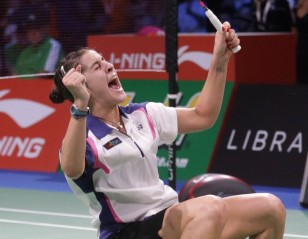
Epic Battles in Ballerup 1 September 2014
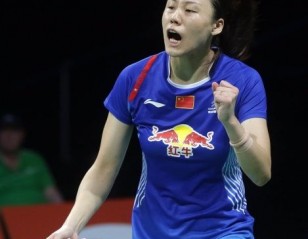
Li-Ning BWF World Championships 2014 – Day 7: Zhao Pockets Double 31 August 2014

Li-Ning BWF World Championships 2014 – Day 7: Marin Makes History; Lee’s... 31 August 2014
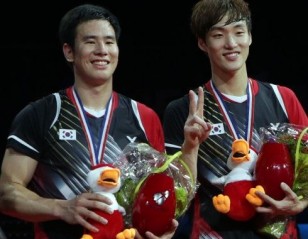
Li-Ning BWF World Championships 2014 – Day 7: Chen Thwarts Lee Chong... 31 August 2014
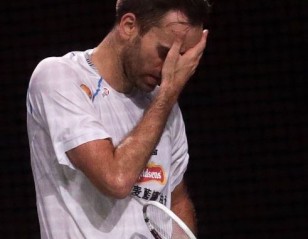
Li-Ning BWF World Championships 2014 – Day 6: Disappointment for Denmark 31 August 2014
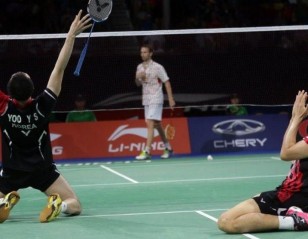
Li-Ning BWF World Championships 2014 – Day 6: Magnificent Marin Shines 30 August 2014
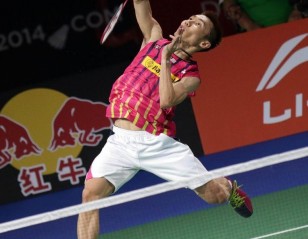
Li-Ning BWF World Championships 2014 – Day 6: Superb Lee Hurtles into... 30 August 2014
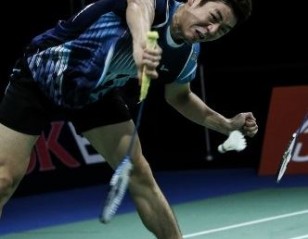
Li-Ning BWF World Championships 2014 – Day 5: A Few Surprises 30 August 2014
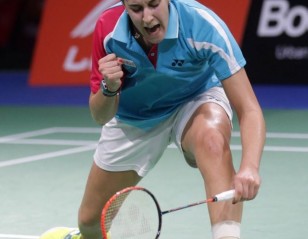
Li-Ning BWF World Championships 2014 – Day 5: ‘Viktor-ious’ – Marin and... 29 August 2014
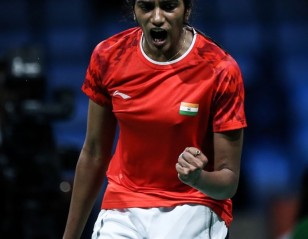
Li-Ning BWF World Championships 2014 – Day 5: Sizzling Sindhu into Semi-Finals 29 August 2014
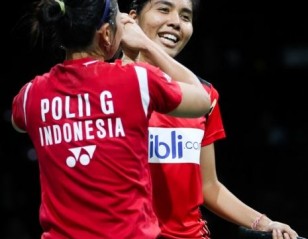
Li-Ning BWF World Championships 2014 – Day 4: Seeds Tumble Out 29 August 2014
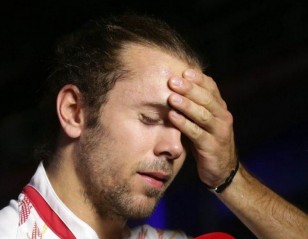
Li-Ning BWF World Championships 2014 – Day 4: Jorgensen’s Nightmarish End 28 August 2014
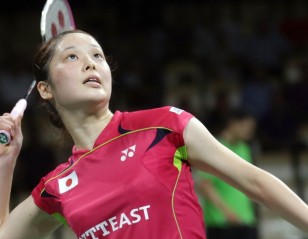
Li-Ning BWF World Championships 2014 – Day 4: Resolute Mitani Topples Intanon 28 August 2014
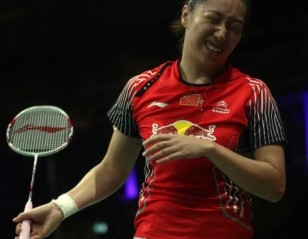
Li-Ning BWF World Championships 2014 – Day 3: Competition Heats Up 28 August 2014
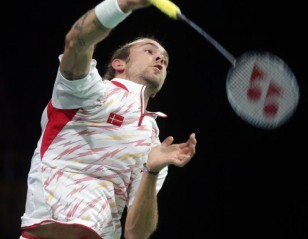
Li-Ning BWF World Championships 2014 – Day 3: Jorgensen ‘Danes’ to Dream 27 August 2014
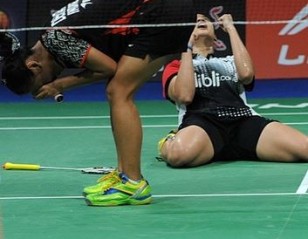
Li-Ning BWF World Championships 2014 – Day 3: Chinese ‘Bao’ Out 27 August 2014
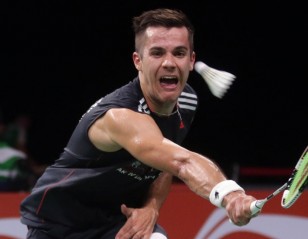
Li-Ning BWF World Championships 2014 – Day 2: Hits and Misses 27 August 2014
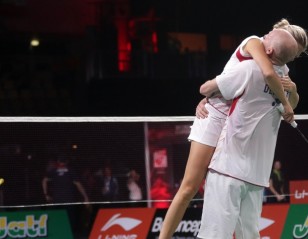
Li-Ning BWF World Championships 2014 – Day 2: Father Figures in Sugiarto... 26 August 2014
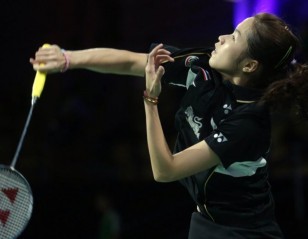
Li-Ning BWF World Championships 2014 – Day 2: Smooth Passage for Seeds 26 August 2014
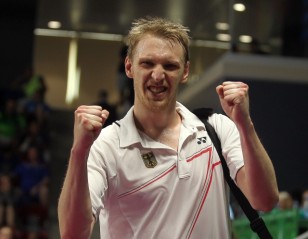
Li-Ning BWF World Championships 2014 – Day 1: Chong Wei Cruises; Domke... 25 August 2014
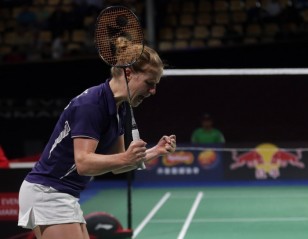
Li-Ning BWF World Championships 2014 – Day 1: Wei Gains Revenge Over... 25 August 2014
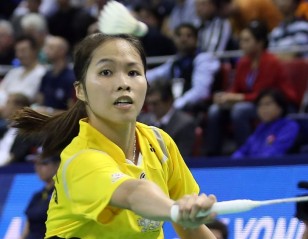
Li-Ning BWF World Championships 2014: Championships Showdown Set 24 August 2014
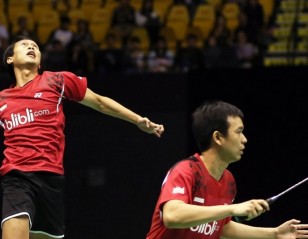
Li-Ning BWF World Championships 2014: Double-Injury Withdrawals Hit Indonesia 19 August 2014

History of the Worlds & Countdown to Copenhagen – Li-Ning BWF World... 15 August 2014

Li-Ning BWF World Championships 2014: Jorgensen and Santoso in the ‘Wei’ 11 August 2014
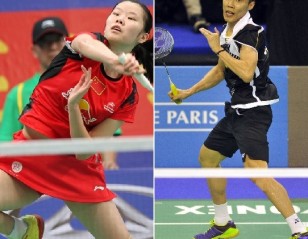
Lee Chong Wei and Li Xuerui Lead Seedings 8 August 2014

Li-Ning Title-Sponsors BWF World Championships 2014 25 June 2014
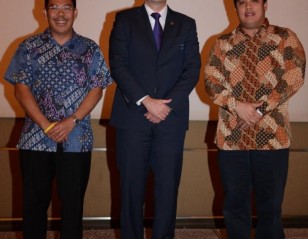
Jakarta to Host BWF World Championships 2015 28 November 2013
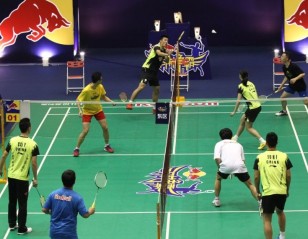
RedBull China Scores Big With “Super Final” 27 August 2013
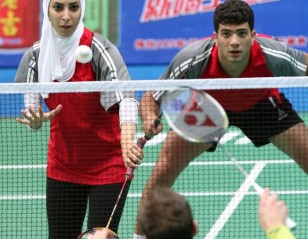
Wang Lao Ji BWF World Championships 2013: Memories of Guangzhou 13 August 2013
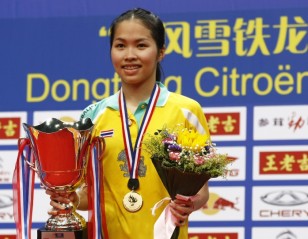
Wang Lao Ji BWF World Championships 2013 – Day 7: Lin Dan’s... 11 August 2013
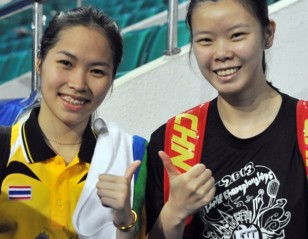
Wang Lao Ji BWF World Championships 2013 – Day 6: Dream Final... 10 August 2013
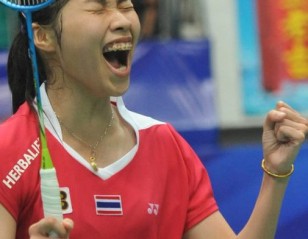
Wang Lao Ji BWF World Championships 2013 – Day 5: Danish Pairs... 9 August 2013
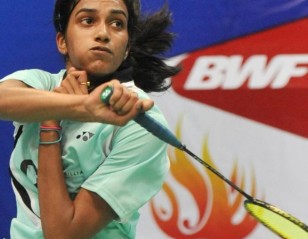
Wang Lao Ji BWF World Championships 2013 – Day 4: Stunning Sindhu... 8 August 2013
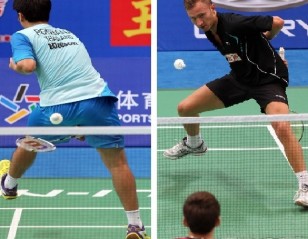
Wang Lao Ji BWF World Championships 2013 – Day 3: China Flourishes;... 7 August 2013
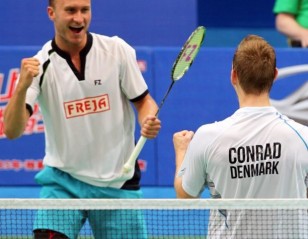
Wang Lao Ji BWF World Championships 2013 – Day 2: Xu and... 6 August 2013
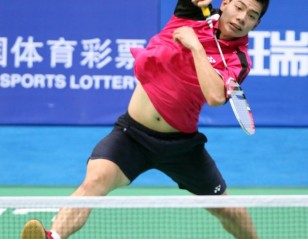
Wang Lao Ji BWF World Championships 2013 – Day 1: Kuncoro, Wong... 5 August 2013
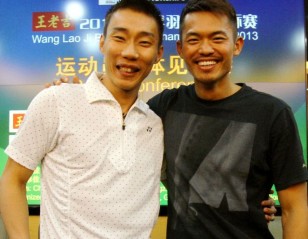
Wang Lao Ji BWF World Championships 2013: Superstar Showdown in the Making 4 August 2013
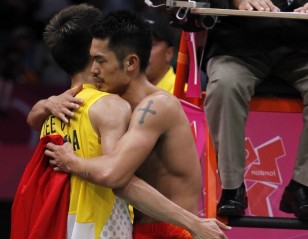
Wang Lao Ji BWF World Championships 2013: Enthralling Battles Eagerly Awaited 3 August 2013
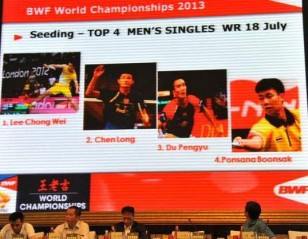
Draw Separates Lee Chong Wei and Lin Dan 22 July 2013

BWF ‘Worlds’ Draw To Be Held Monday 22 July 17 July 2013
